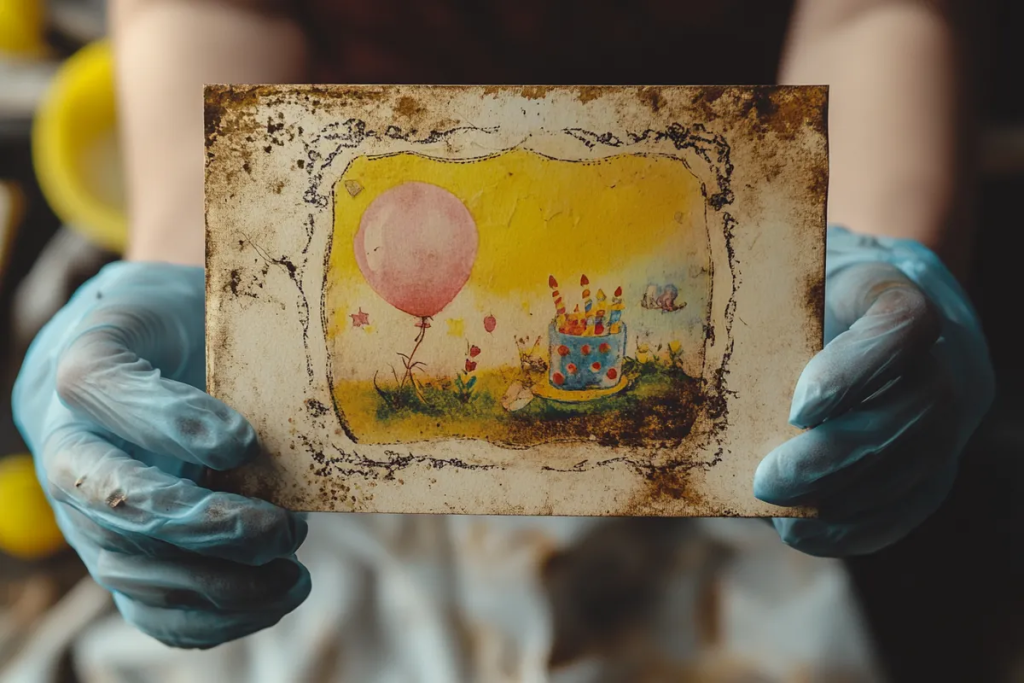
When Claire agrees to clean a reclusive woman’s neglected home, she expects dirt and clutter — but not the eerie feeling of a house frozen in time. As she sorts through the piled-up mess, she finds a stack of birthday cards that leads her to a heartbreaking revelation.
My phone buzzed as I packed my cleaning caddy. Another day, another home that needed cleaning.
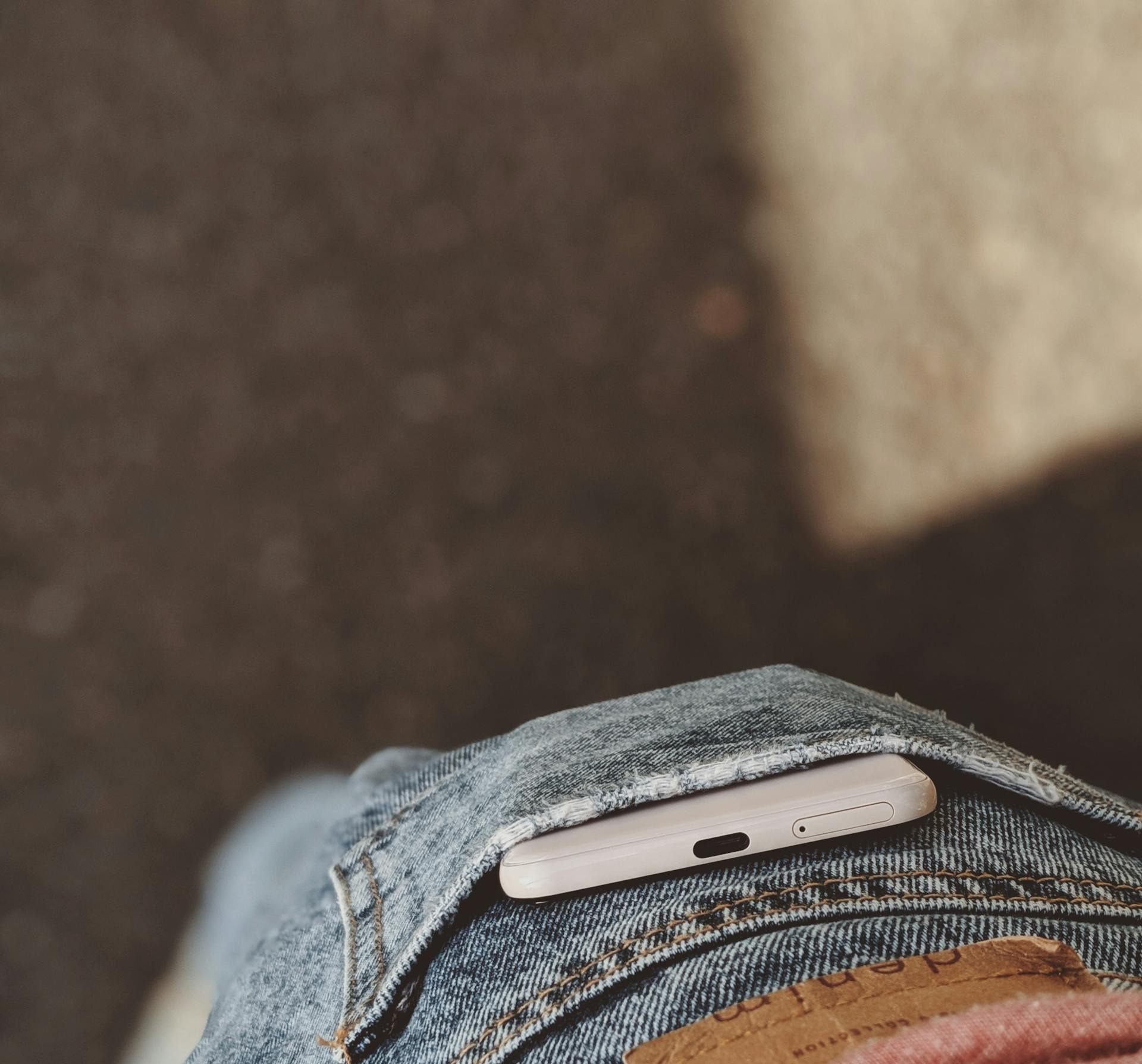
A cell phone in someone’s back pocket | Source: Pexels
“Clean Slate Services, this is Claire,” I answered, wedging the phone between my ear and shoulder as I checked my supply of microfiber cloths.
“Hello?” The voice was elderly and tentative. “My name is Margaret. My daughter suggested I contact you. She said you post videos online about helping people clean their homes?”
I smiled, thinking of the before-and-after videos that had become surprisingly popular.
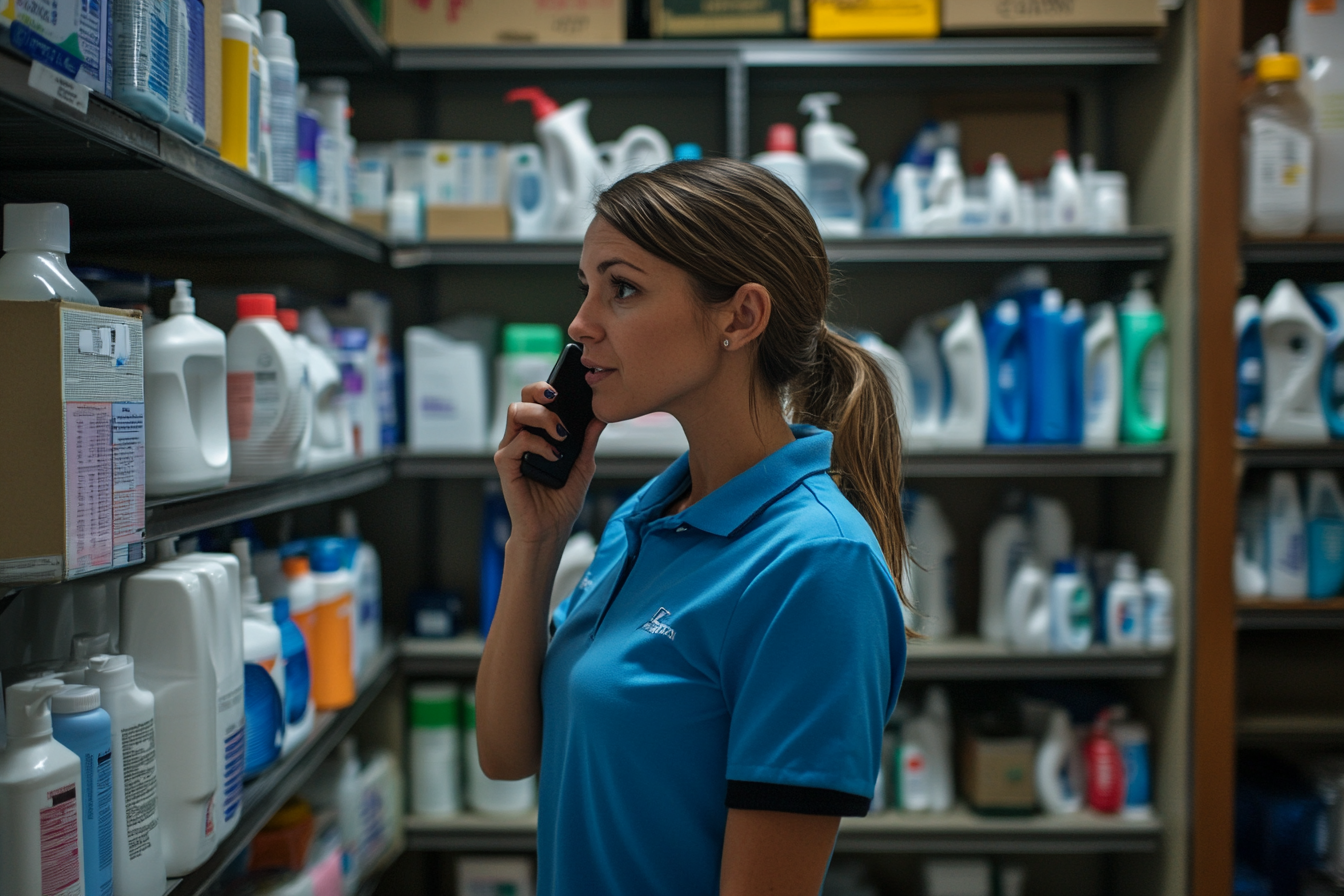
A woman in a store room speaking on her phone | Source: Midjourney
My small cleaning business may not have been setting the world on fire, but scrubbing suburban floors and dusting small offices served a greater purpose. Those jobs allowed me to offer free cleaning services to people in need.
“That’s me,” I replied to Margaret. “How can I help?”
“It’s not for me.” Her voice dropped to a near-whisper. “It’s my neighbor, Eleanor. She needs help. She won’t ask for it, but she needs it.”
Something in her tone made me stop what I was doing.
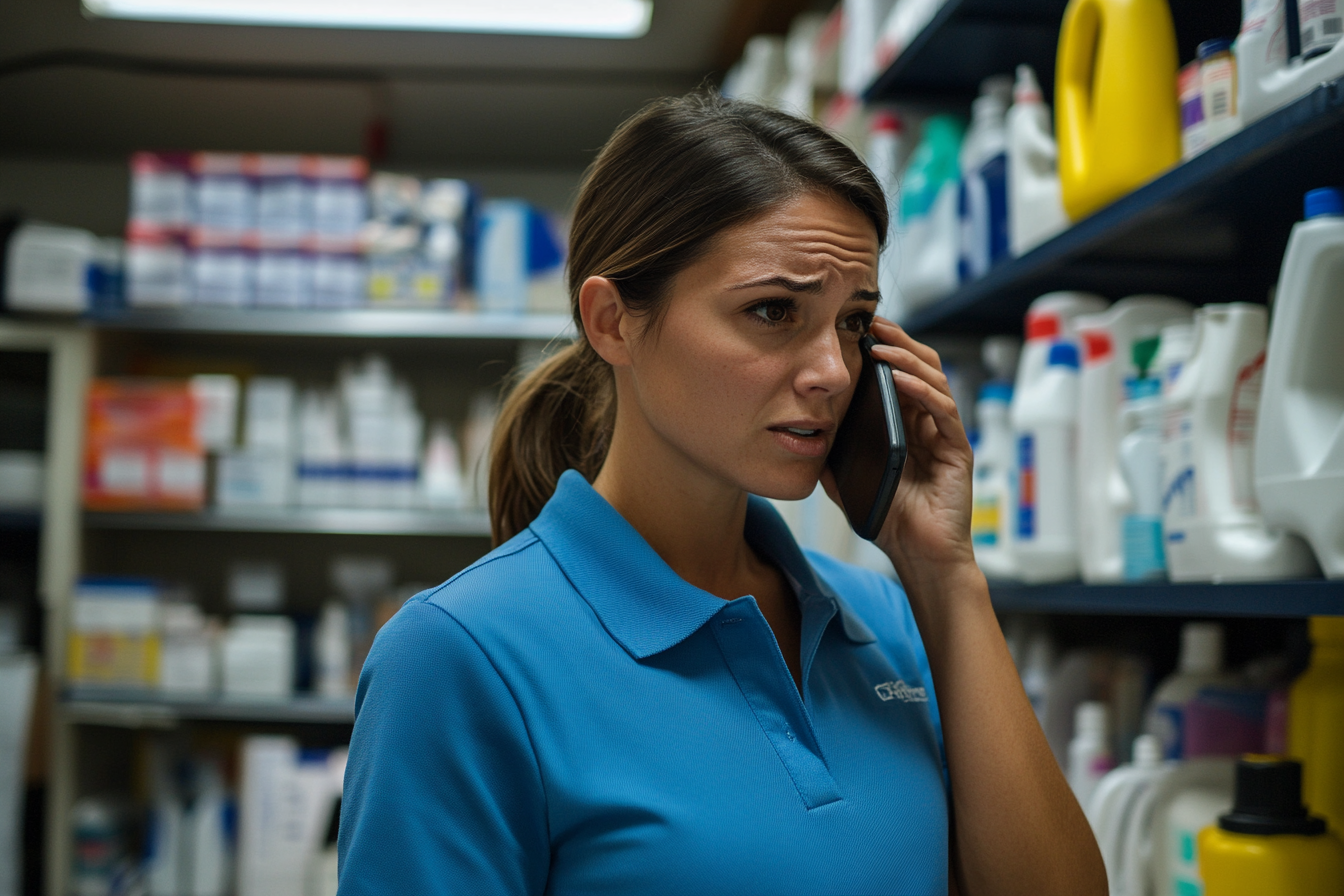
A concerned woman speaking on her cell phone | Source: Midjourney
I’d heard this kind of concern before — the worry that comes when someone watches another person slowly disappear.
“Tell me about Eleanor,” I said, sitting down on a nearby stool.
Margaret sighed. “Her yard is completely overgrown now. There are newspapers piling up on her porch that she never brings in. I tried checking on her last week and she barely opened the door, but when she did…” Margaret paused. “There was a bad smell. And what I could see behind her… it wasn’t good.”
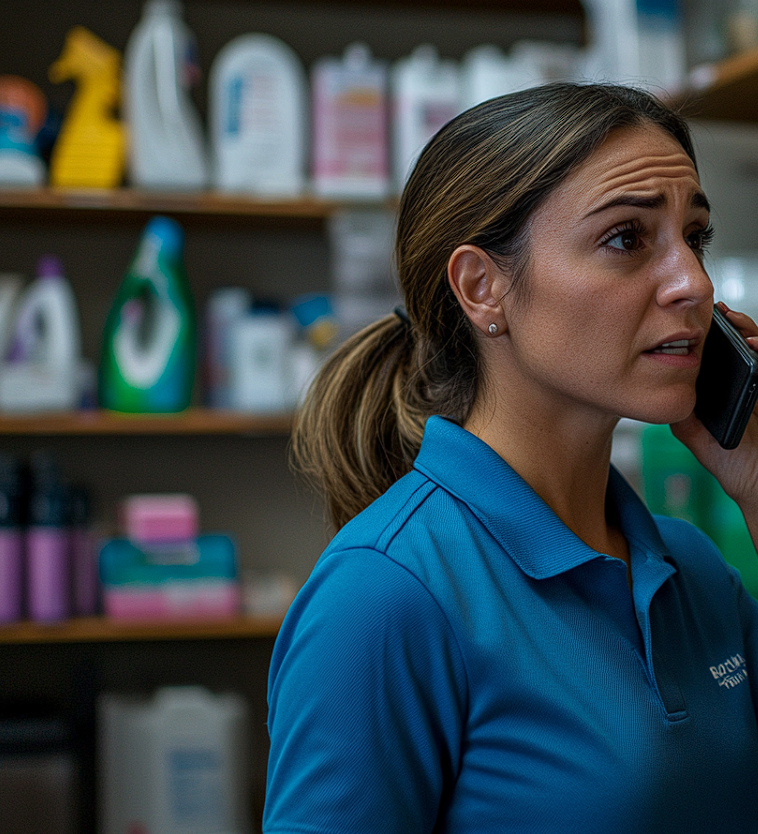
A woman using her cell phone | Source: Midjourney
My stomach tightened. I knew what that meant.
“It wasn’t always like this,” Margaret continued. “She used to be out in her garden all the time. Her roses won ribbons at the county fair. Then, one day… she just stopped. She’s a good person, Claire. I just… something’s terribly wrong.”
I hesitated for only a moment. These calls never came at convenient times, but that was the nature of crises.
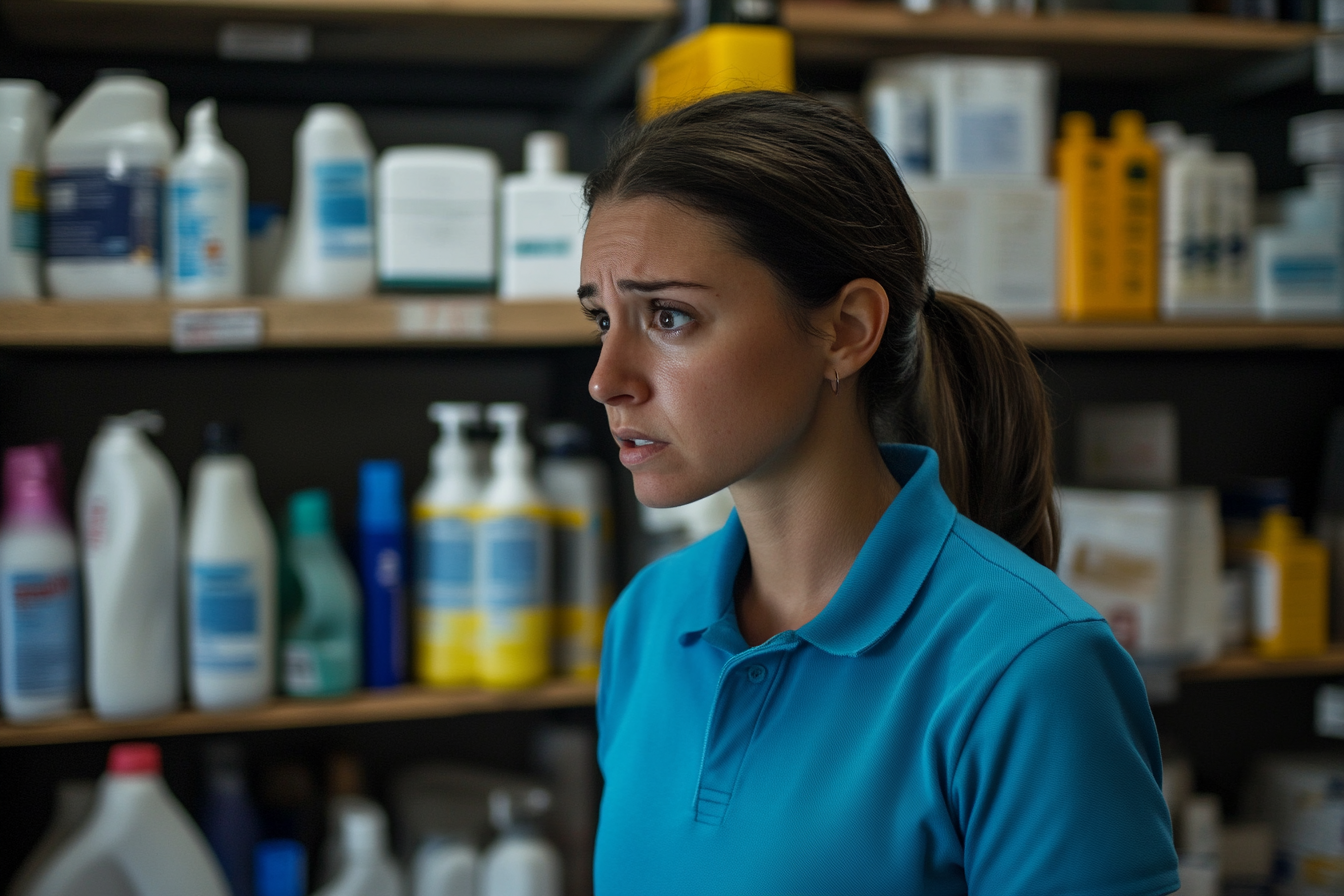
A worried-looking woman in a supply room | Source: Midjourney
“I’ll be there in an hour,” I promised. “What’s the address?”
After hanging up, I texted Ryan, my husband and business partner: Emergency clean-up. Not sure how bad yet. May need backup.
His response came immediately: On standby. Let me know.
I grabbed my “first assessment” kit — gloves, mask, basic cleaning supplies, and a change of clothes. Experience had taught me to always be prepared for the worst.
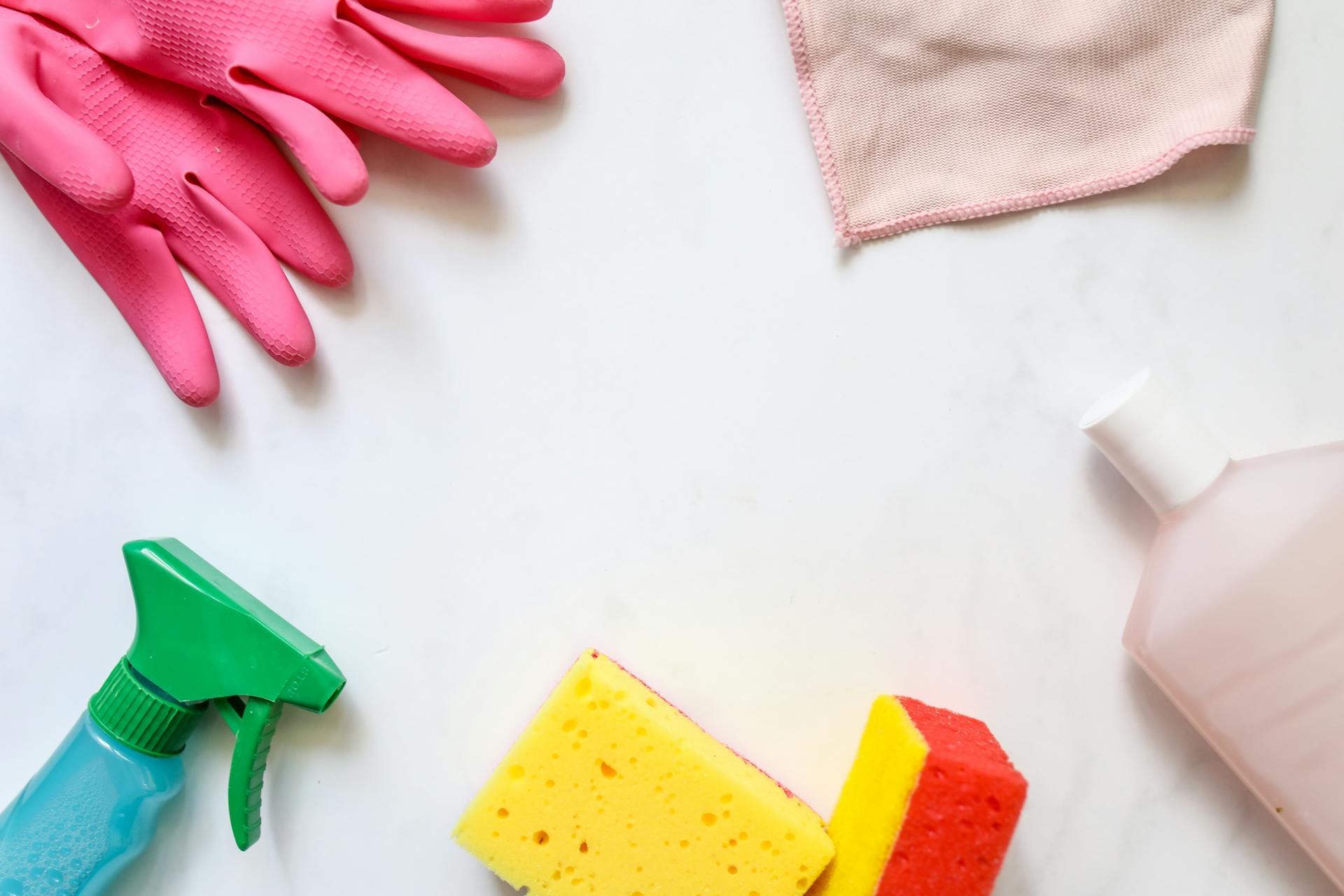
A variety of cleaning supplies | Source: Pexels
Eleanor’s house was a modest one-story with faded blue siding. The lawn had transformed into a meadow and dead flowers hung in forgotten window boxes. The mailbox listed to one side, stuffed with envelopes.
I knocked and waited. Nothing. I knocked again, louder.
Finally, I heard shuffling footsteps. The door opened just an inch, revealing a sliver of a woman’s face.
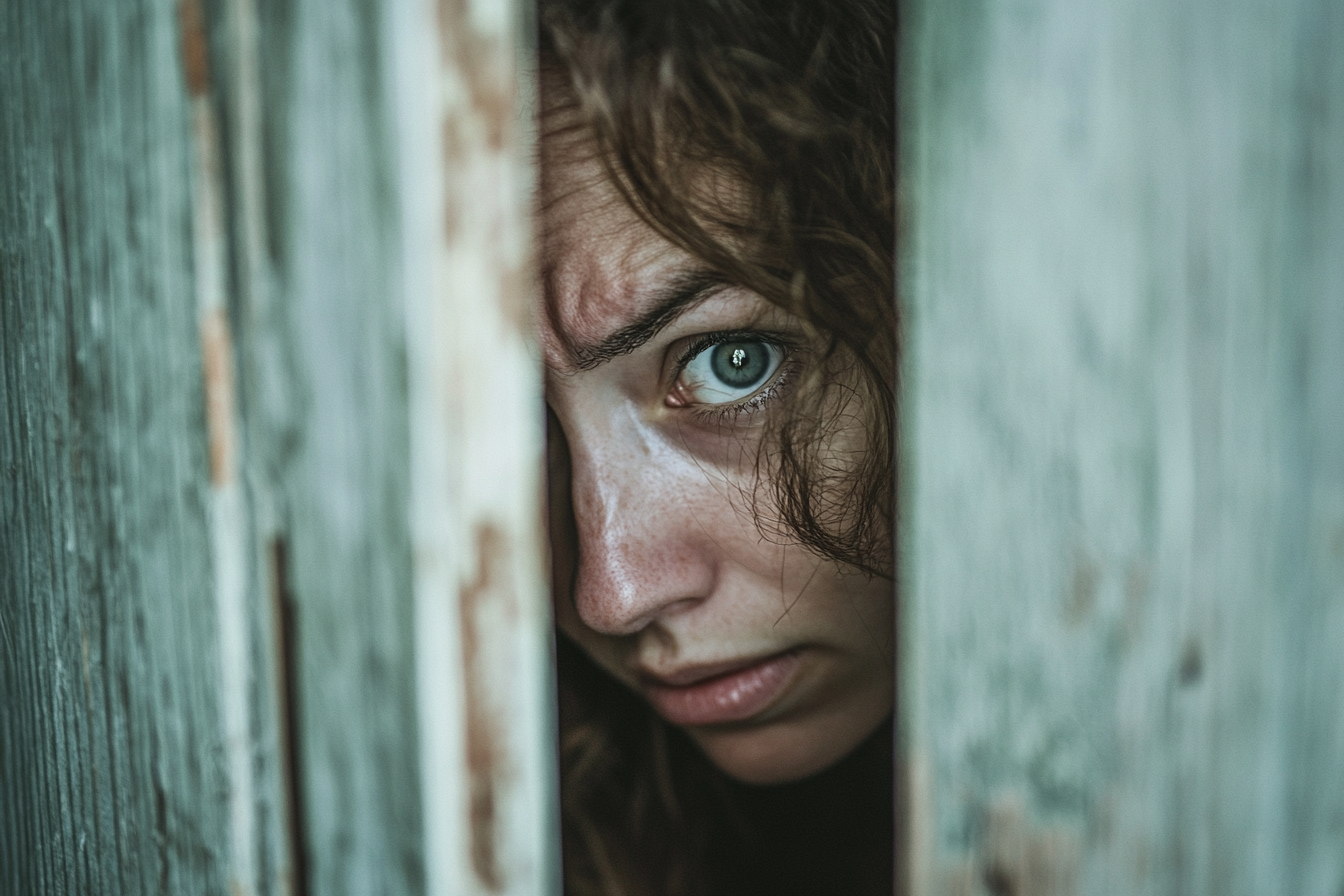
A woman peeking through a slightly open door | Source: Midjourney
She was pale, with unkempt hair and tired eyes that widened at the sight of my company polo shirt.
“I don’t need a cleaning service,” she muttered, already starting to close the door.
“I’m not here to sell anything,” I said quickly, keeping my tone gentle. “Margaret asked me to come. She’s worried about you. She thought you might need help.”
Eleanor’s jaw set in a hard line. “I can handle it myself.”
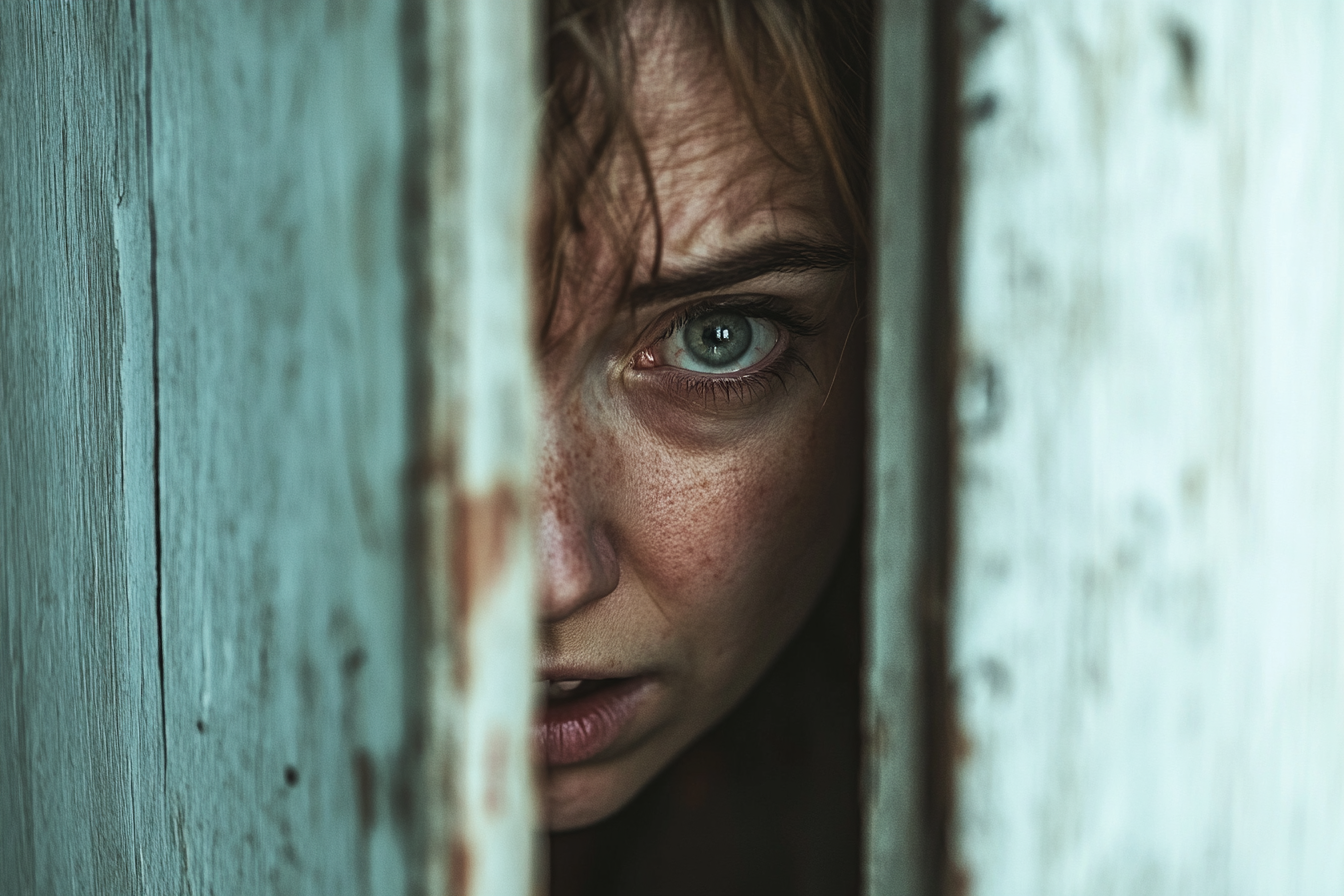
A woman speaking harshly | Source: Midjourney
I took a slow breath. I recognized this tone. This kind of resistance was not pride, but shame. It was the same way my mother used to react when concerned neighbors or teachers would ask about the piles of boxes filling our house.
“My mom used to say the same thing. ‘I can handle it.’ But sometimes, handling it means letting someone help,” I said softly. “I know what it’s like, Eleanor, how it all builds up. That’s why I started my cleaning business, so I could clean homes for free for people who need a fresh start.”
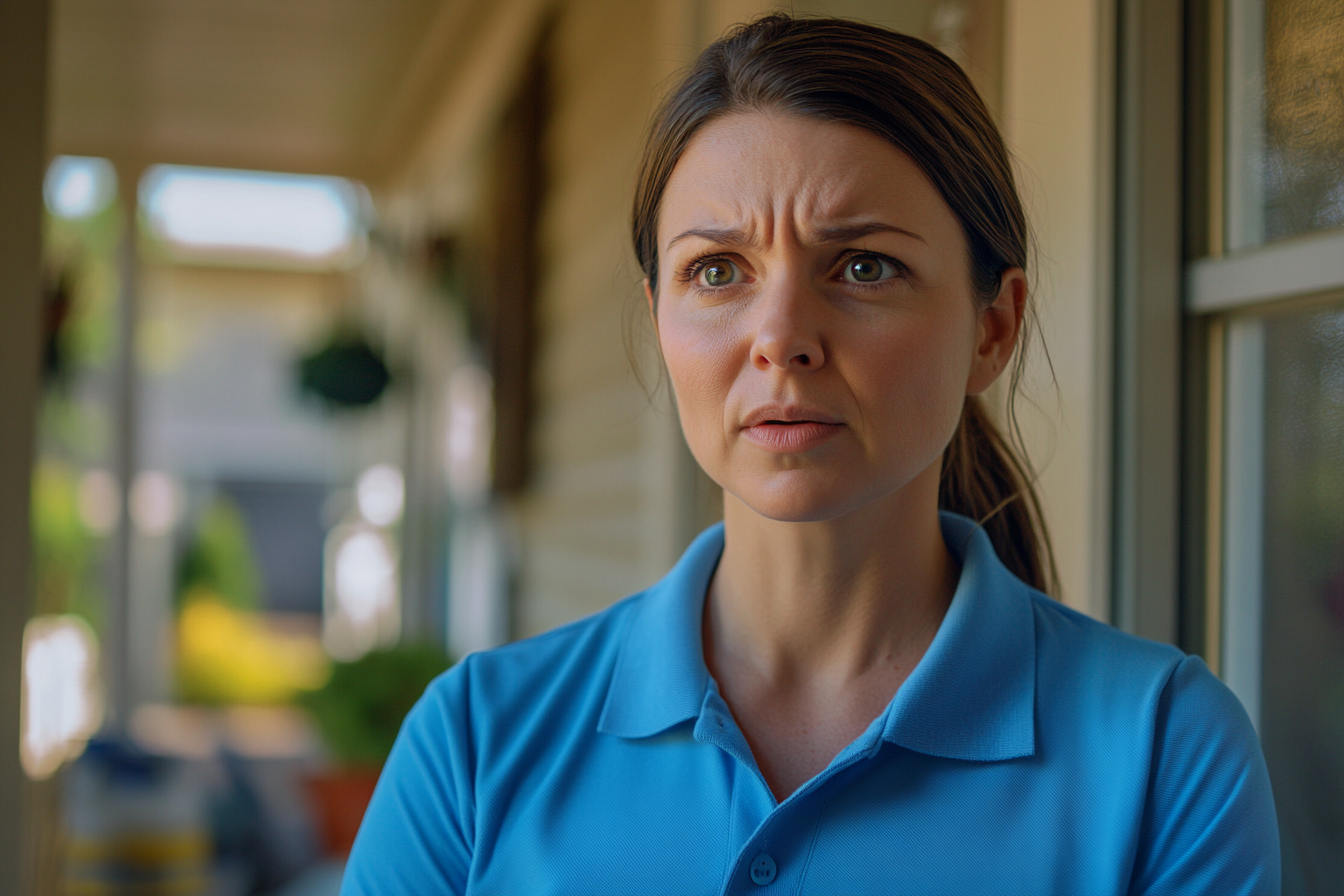
A woman on a porch speaking to someone | Source: Midjourney
“A fresh start…” Eleanor sighed the words as though she barely dared to believe them.
For the first time, her eyes flicked up to meet mine. Something flickered there — hope, maybe. Or simply exhaustion. There was a long pause where I could almost see her weighing her options. Then her face crumpled.
“I don’t even know where to start,” she whispered.
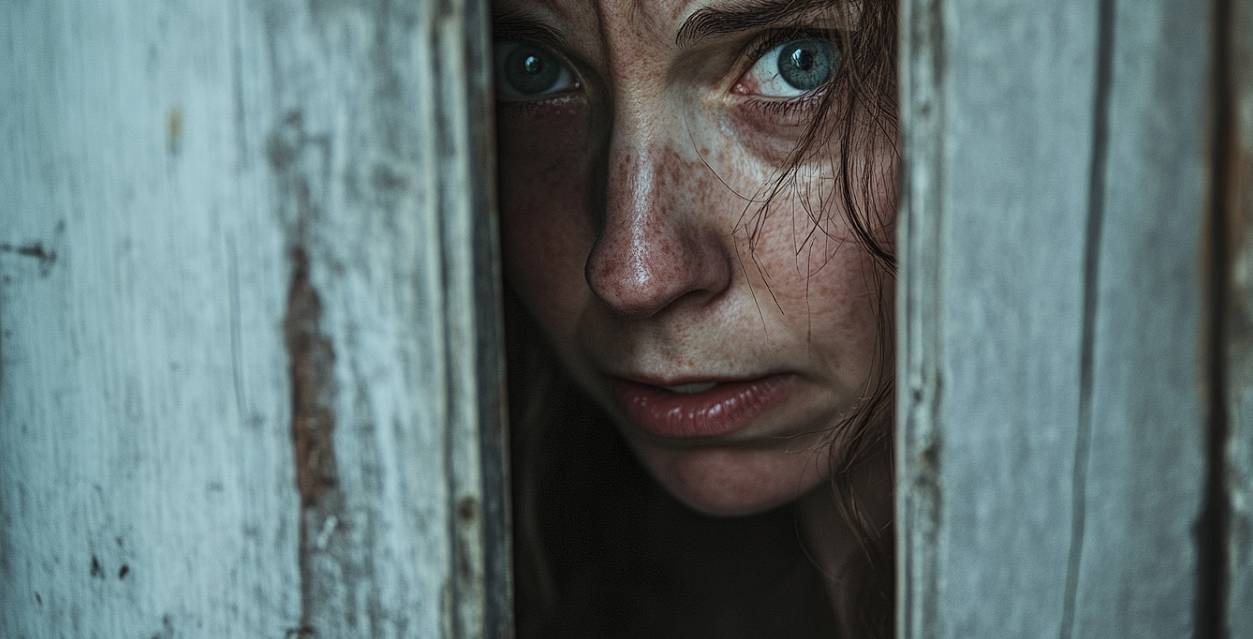
A woman whispering sadly | Source: Midjourney
“You don’t have to,” I assured her. “That’s why I’m here. Maybe you could spend the day with Margaret while I work? It might be easier that way.”
Eleanor hesitated, chewing on her lower lip. Finally, she nodded. “Let me get my purse.”
She disappeared behind the door for a moment. When she emerged, she was wearing a cardigan that had seen better days and carrying a worn leather handbag. I noticed how she kept her eyes down, avoiding looking at her front yard.
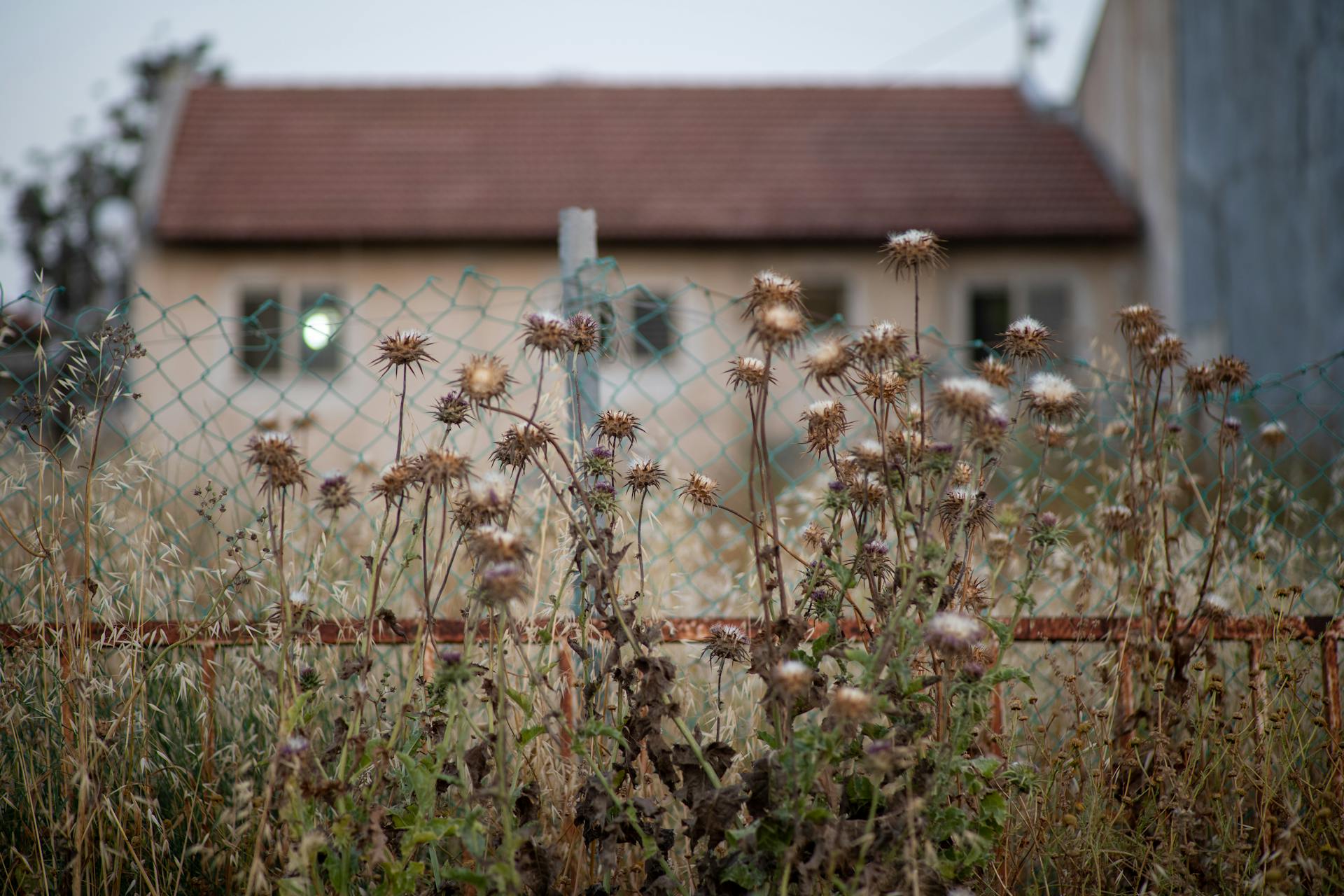
Withered plants near a fence in a neglected yard | Source: Pexels
We walked together to Margaret’s house next door. Eleanor moved cautiously, like each step required calculation. Her shoulders hunched forward slightly, as if she was carrying something heavy.
Margaret answered her door with surprise that quickly melted into joy.
“Eleanor! Oh, it’s so good to see you out,” she exclaimed. “Come in, come in. I just made a fresh pot of tea.”
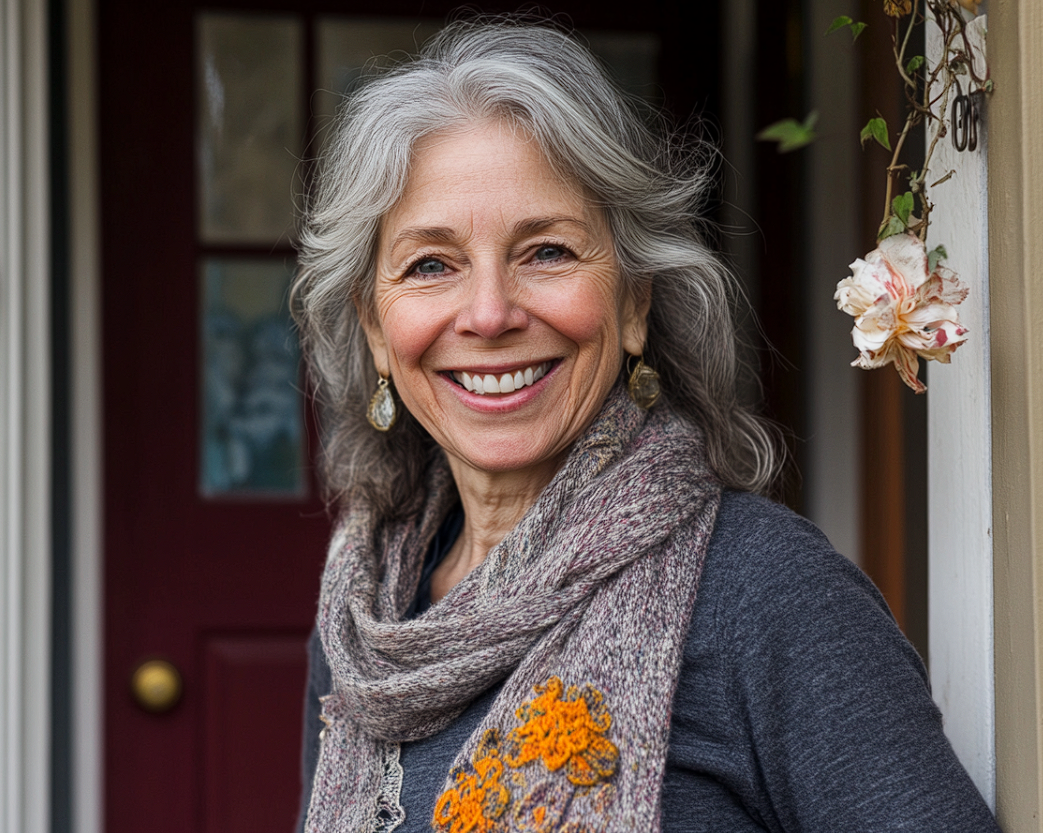
A smiling woman | Source: Midjourney
Eleanor managed a small smile as she stepped inside. “Thank you, Margaret.”
Margaret caught my eye over Eleanor’s shoulder and mouthed a silent “thank you.” I nodded and headed back to Eleanor’s house, already pulling out my phone.
“Ryan? I need you to bring the industrial garbage bags. And maybe a respirator.”
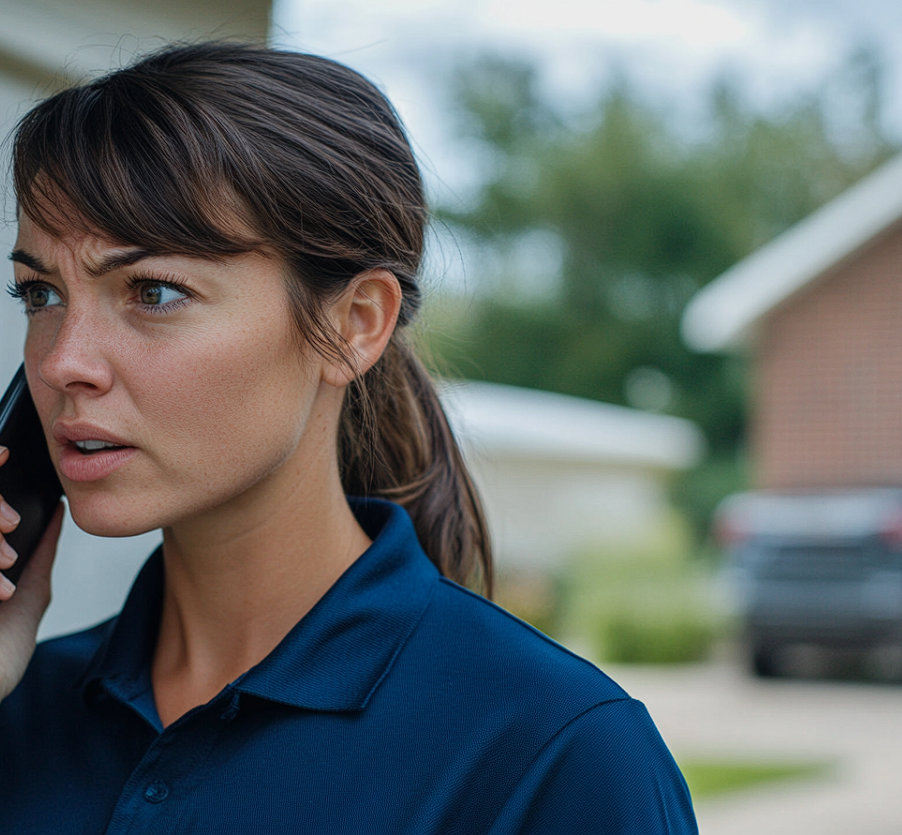
A concerned woman on a phone call | Source: Midjourney
Ryan arrived 30 minutes later, a box of our heavy-duty cleaning supplies in his arms. He took one look inside the house and exhaled sharply.
“She’s been living like this?” he asked, his voice muffled by the mask he’d already put on.
I nodded. “For years, I’d guess.”
The house wasn’t packed floor to ceiling with junk, but it was suffocating. Dishes with dried food crusted onto them formed precarious towers in the sink. Mold crept along the baseboards.
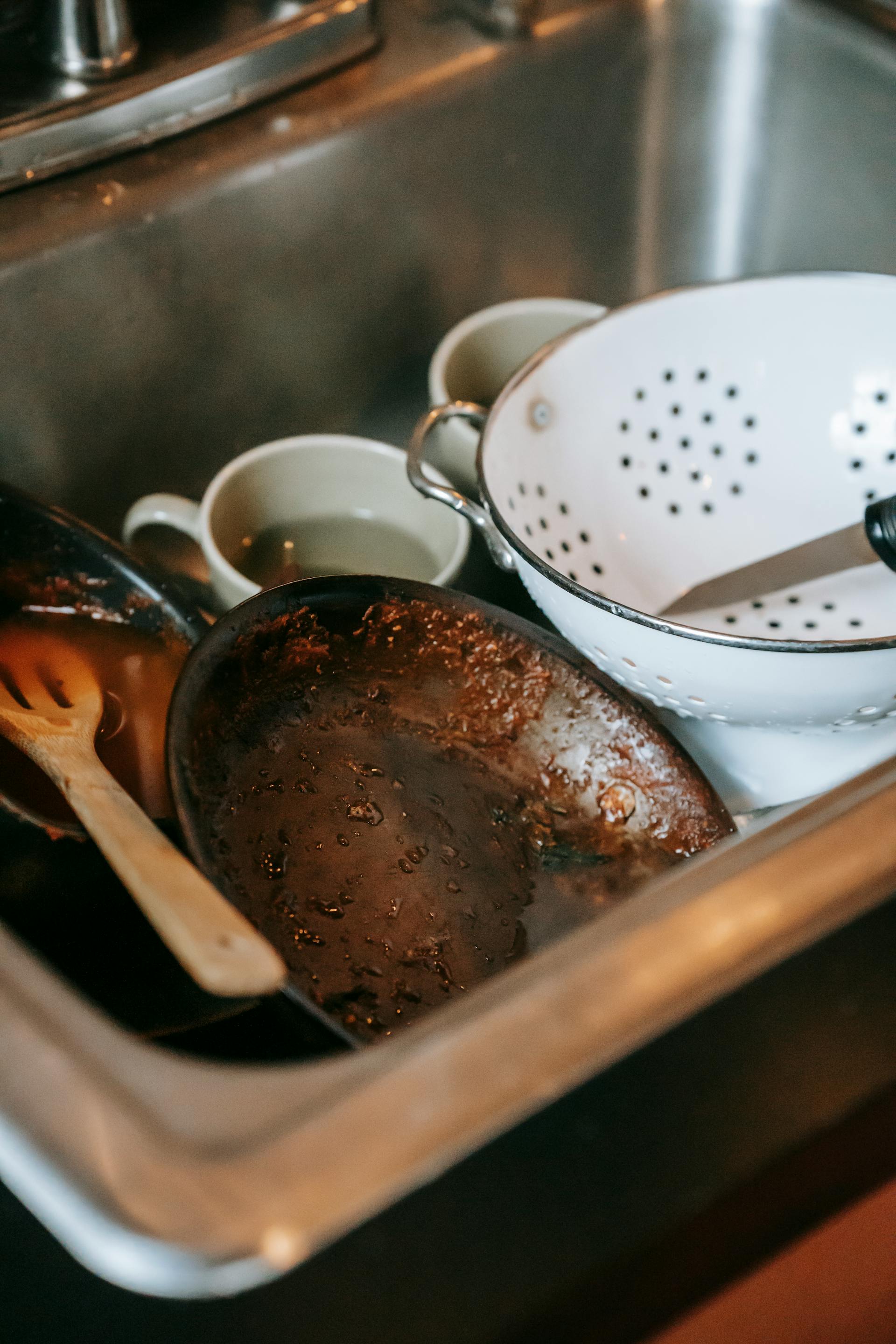
Dirty dishes in a sink | Source: Pexels
The air was stagnant, heavy with the smell of neglect.
I pulled on my gloves and mask. “Focus on bagging up the obvious trash in the living room and kitchen, please — rotting takeout containers, empty packaging, bottles. I’ll start in the bedrooms.”
Ryan nodded, already opening a trash bag. “Got it. I’ll leave the sorting to you.”
I moved carefully across the living room, noting the layer of dust on the television screen.
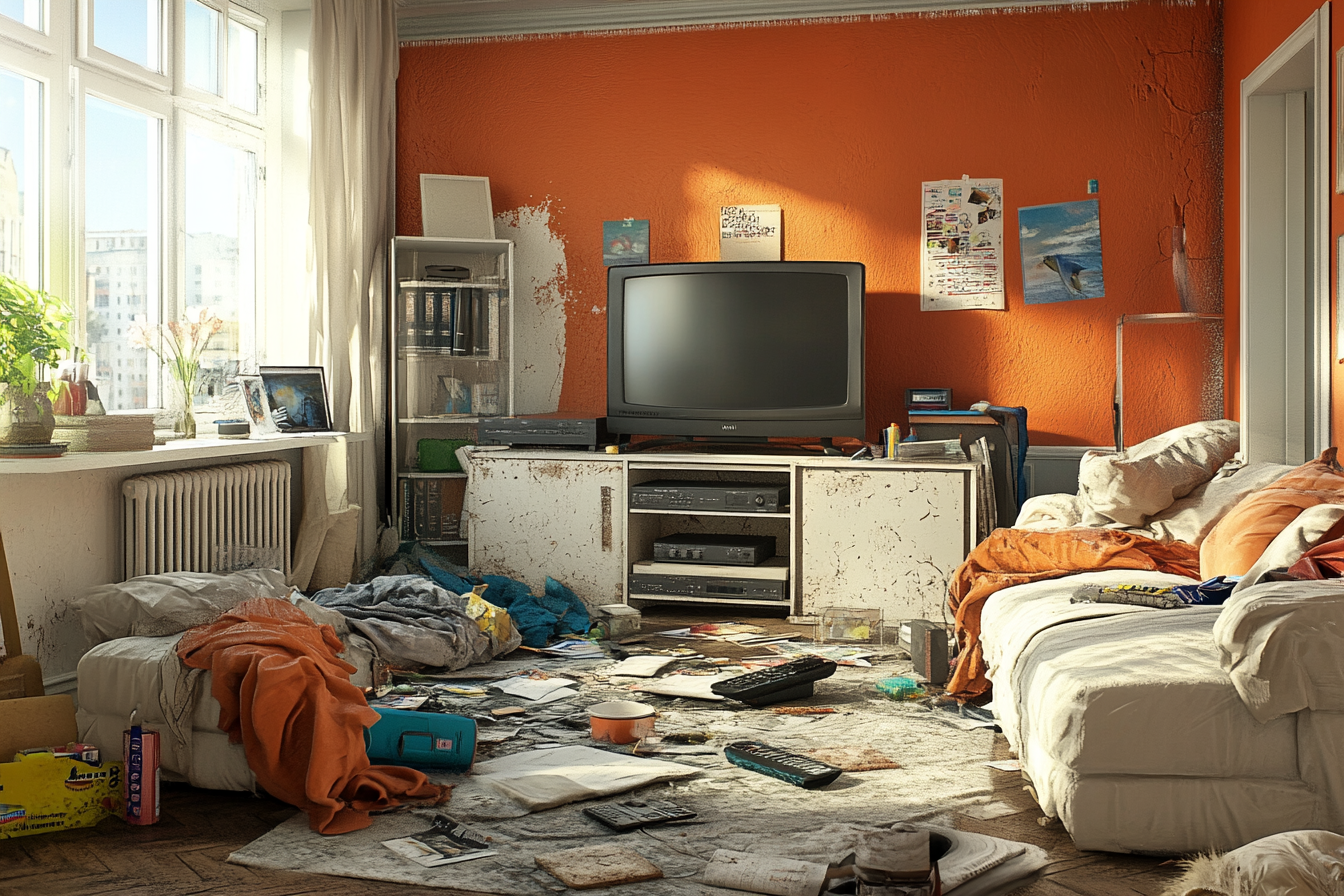
A dirty and untidy living room | Source: Midjourney
The master bedroom was in similar disarray. There were clothes piled on chairs and a bed that hadn’t been made in what looked like months. Prescription bottles for anti-depressants and sleep aids were nestled among the junk on the nightstand.
The labels were all for Eleanor. Anti-depressants. Sleep aids. Another familiar sign.
But it was the second bedroom that stopped me cold.
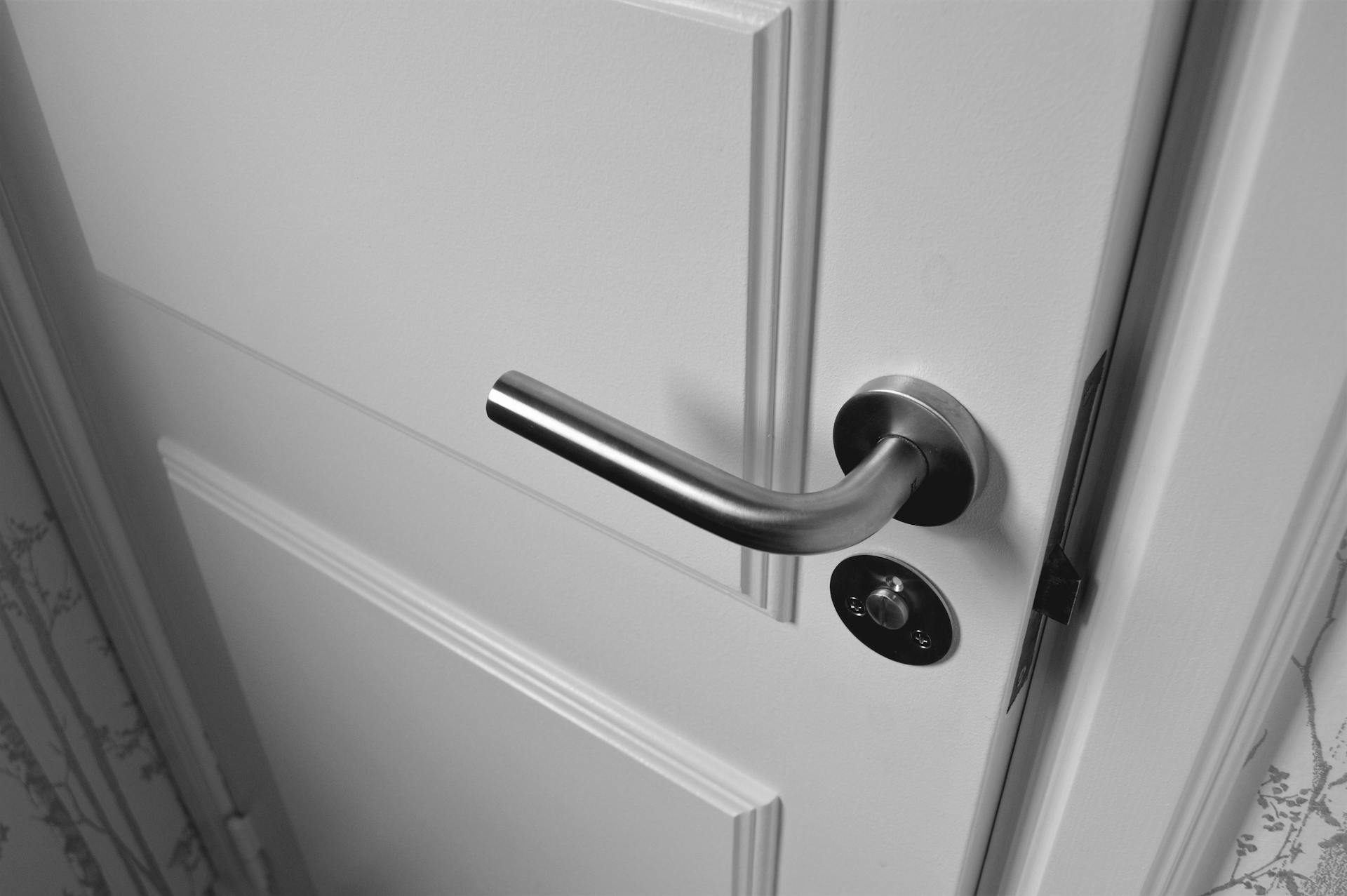
A bedroom door | Source: Pexels
I pushed open the door and immediately felt like I’d stepped into a different house.
Dust floated in the air, catching in the slant of light from a single, grime-streaked window. Cobwebs dangled everywhere, like drapes. The lack of trash in here made it feel abandoned in a way that sent shivers down my spine.
A twin bed sat against one wall, covered with dust. A model solar system hung from the ceiling, also brown with dust, the planets tilting at odd angles from years of stillness.

A model solar system hanging from a ceiling | Source: Midjourney
A dresser stood against the far wall. Inside, I found children’s clothes, neatly folded. T-shirts small enough for a nine or ten-year-old. Superhero pajamas. School uniforms.
I exhaled slowly. This room wasn’t a storage space. It was a memorial.
I carefully closed the drawer and left the room exactly as I’d found it. I’d dust it later, but for now, there were bigger problems.
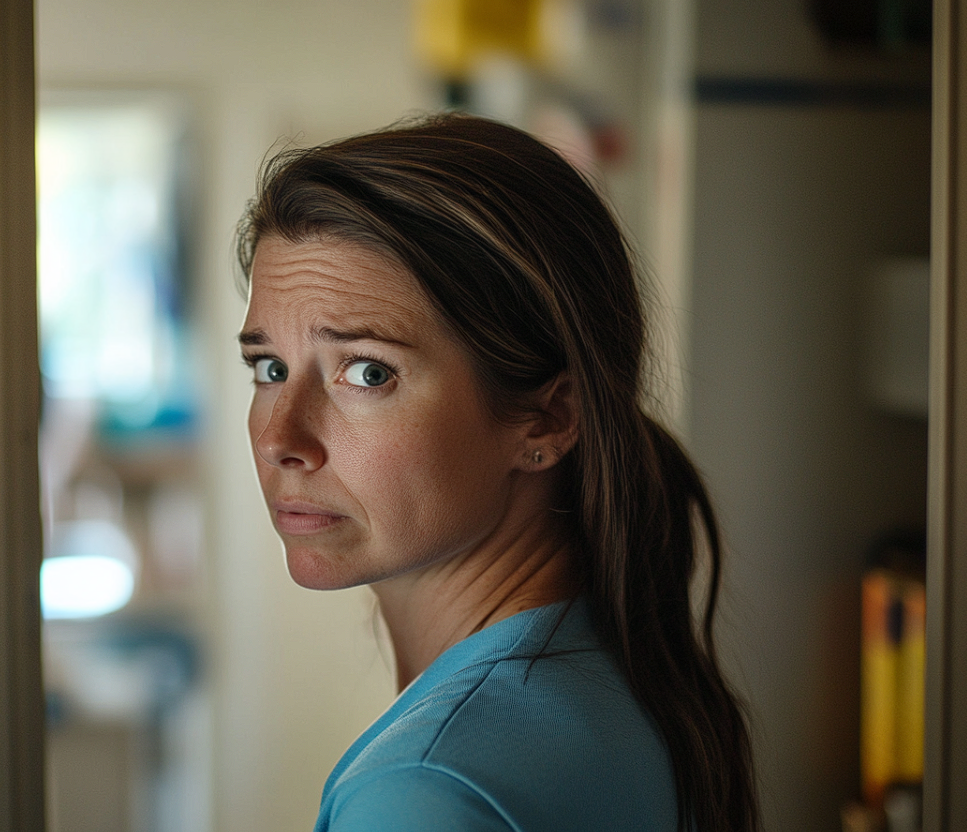
A woman in a doorway | Source: Midjourney
As I cleaned the house, I unearthed framed photographs on a dusty bookshelf. A young boy with dark curls grinned at the camera. In another, the same boy sat on a man’s shoulders, both of them laughing.
But as I found more photos, something gnawed at me. There were no pictures of the boy past the age of ten, or so. All the clothes I’d found earlier were for a child around that age.
In the master bedroom, I found a small stack of birthday cards addressed to “Michael” tucked inside a nightstand drawer.
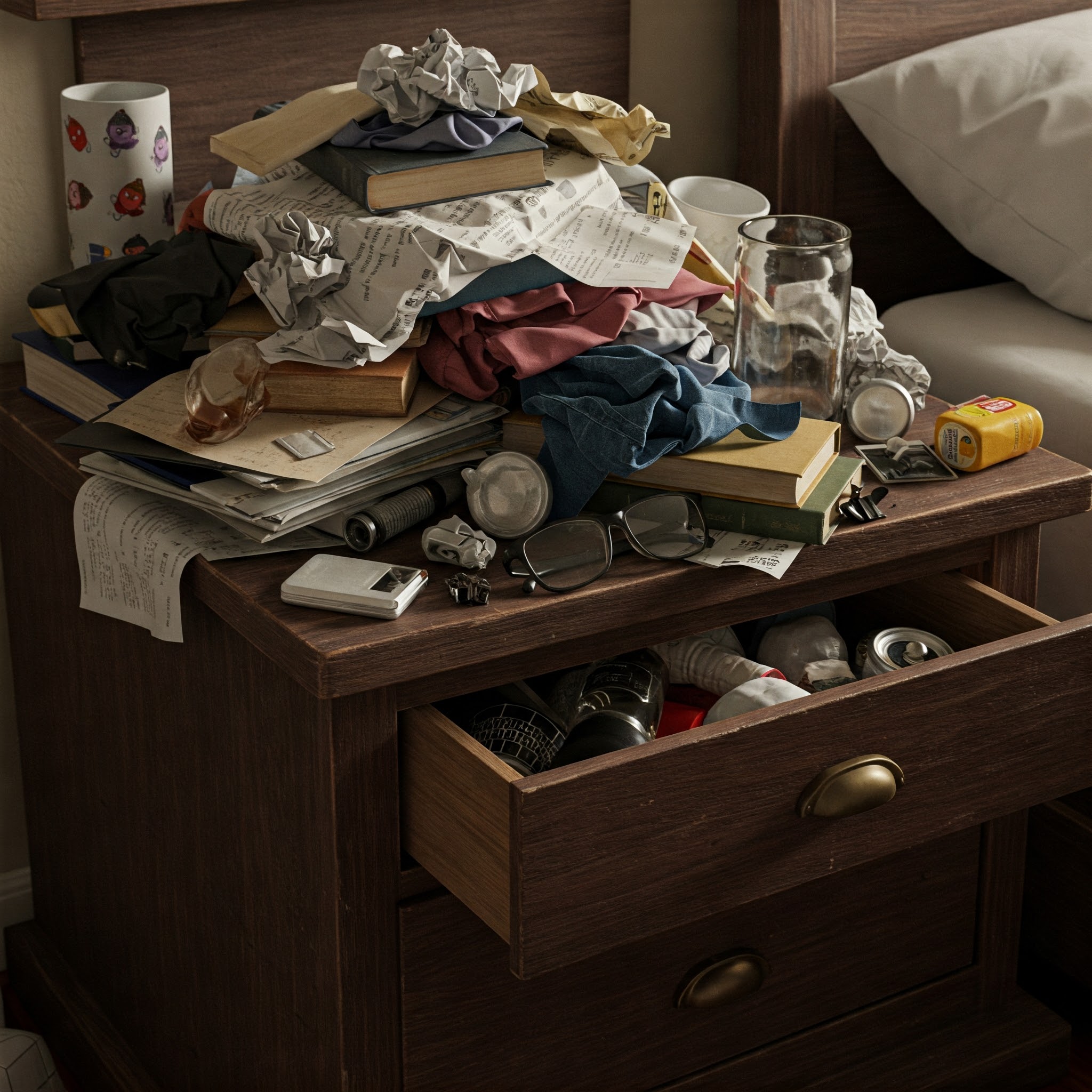
Trash and junk on a nightstand | Source: Gemini
There were cards for every birthday from his first to his 13th. The text in the 13th birthday card was shaky, mostly illegible handwriting. All I could make out was “…would’ve been 13 today.”
Would’ve been? A heavy feeling settled over my heart as I began putting the pieces together. There was always a reason people lost control over the state of their homes, and I suspected this child was part of Eleanor’s reason.
By early afternoon, Ryan and I had made considerable progress. We’d cleared most of the floors and built a mountain of trash bags on the curb.
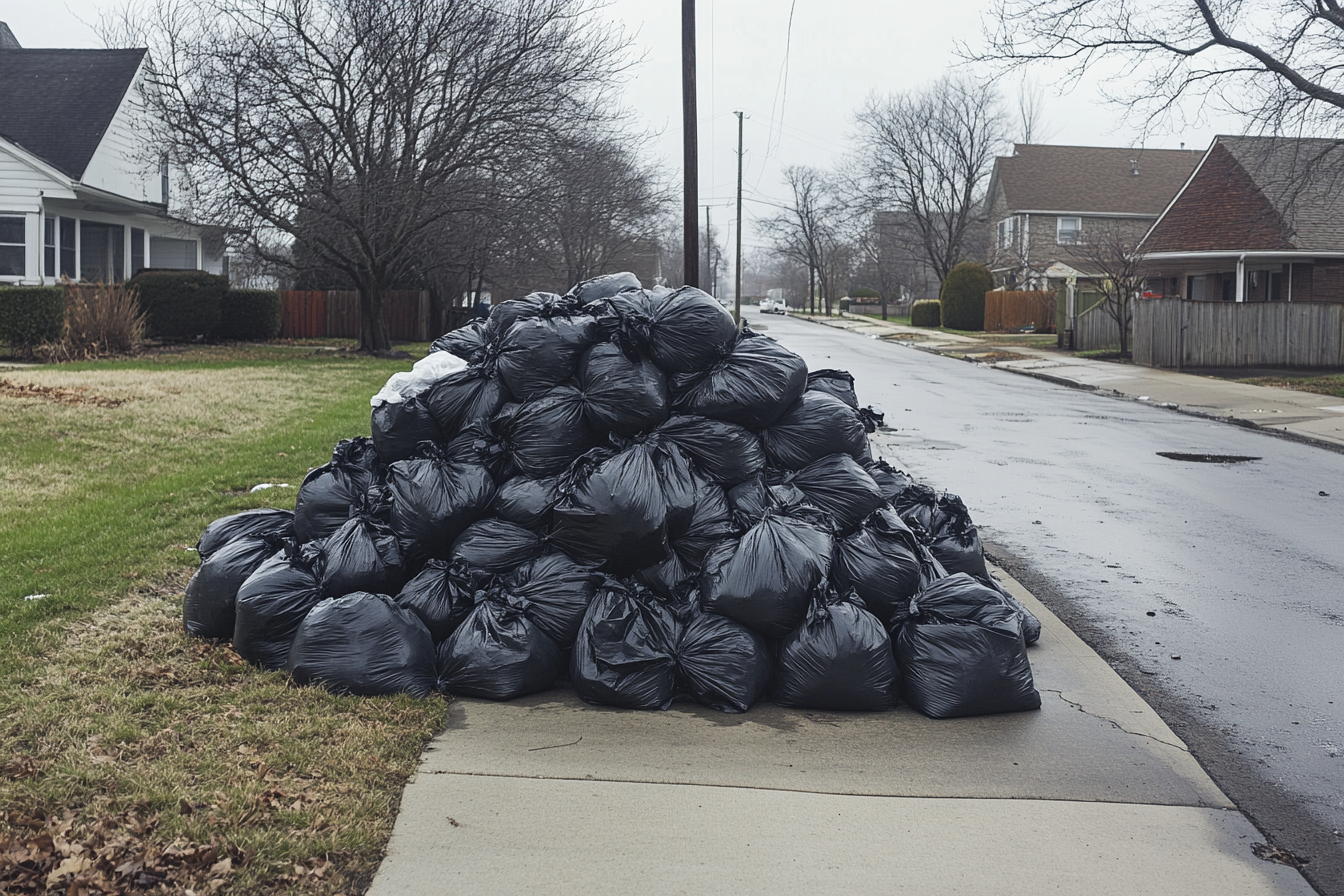
Trash bags on a sidewalk | Source: Midjourney
The kitchen countertops were visible now, and the sink sparkled. The living room had been vacuumed, the surfaces dusted and disinfected.
“I’ll start on the bathroom,” Ryan said, filling a bucket with hot water and bleach.
I nodded. “I’ll finish up in here.”
As I opened a kitchen drawer looking for stray utensils, I found a folded newspaper, yellowed at the edges. I almost threw it out, but then a name caught my eye: Eleanor.

A folded newspaper | Source: Pexels
My breath stilled as I scanned the headline: “Local Father Dies in High-Speed Crash En Route to Hospital.”
According to the article, James had been speeding to get to County General when he lost control of his vehicle. His ten-year-old son, Michael, had been rushed to the same hospital hours earlier by Eleanor, his mother, and James’s wife.
James never made it to see his son.
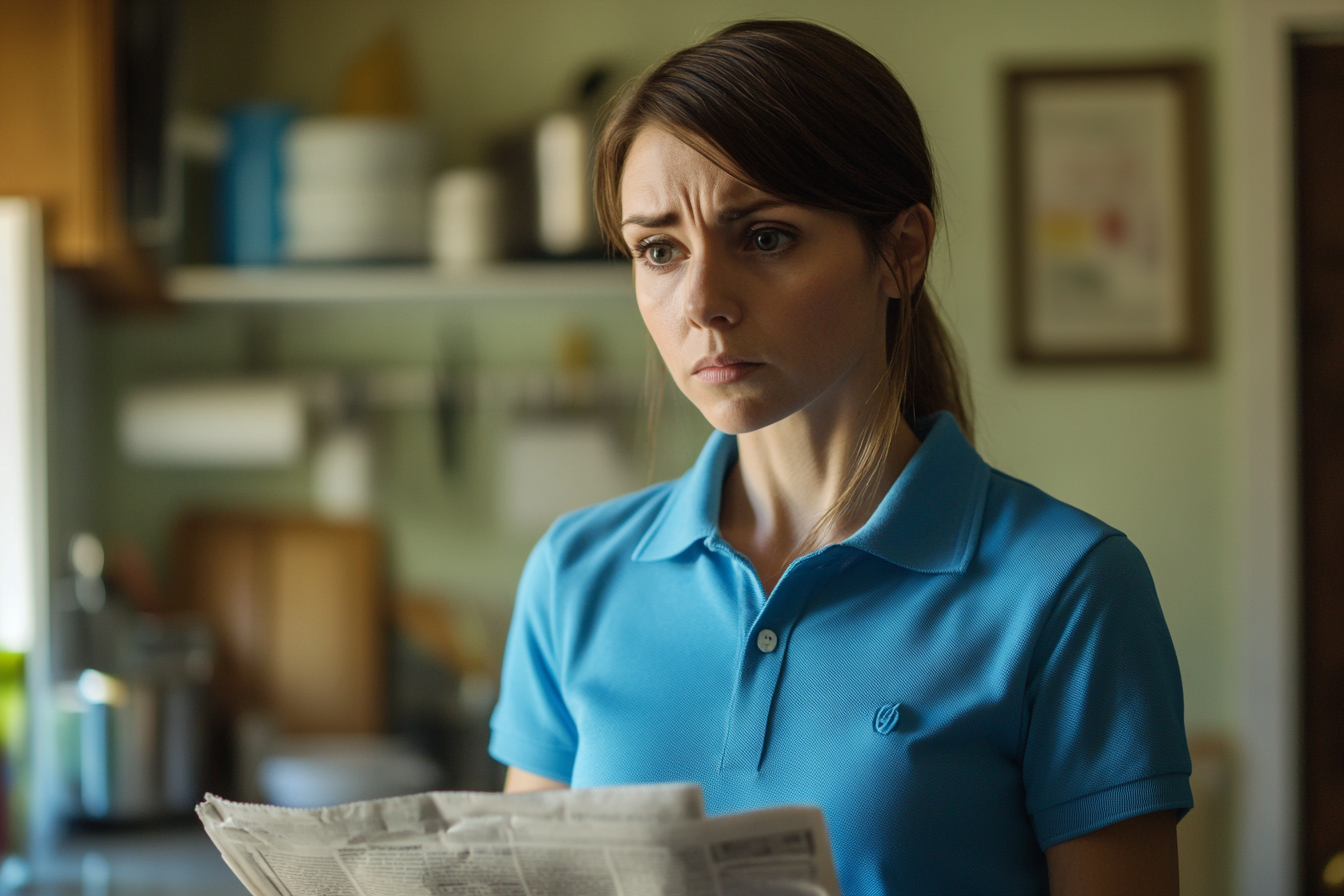
A woman holding a newspaper | Source: Midjourney
I closed my eyes, absorbing the weight of it. He’d been rushing to see his sick son, and then he was gone. The article didn’t mention what had happened to Michael, but the birthday cards and the second bedroom suggested she’d lost him, too.
No wonder it had all gotten too much for Eleanor.
I wiped my hands on my jeans and headed to Margaret’s house. I needed to speak to Eleanor.
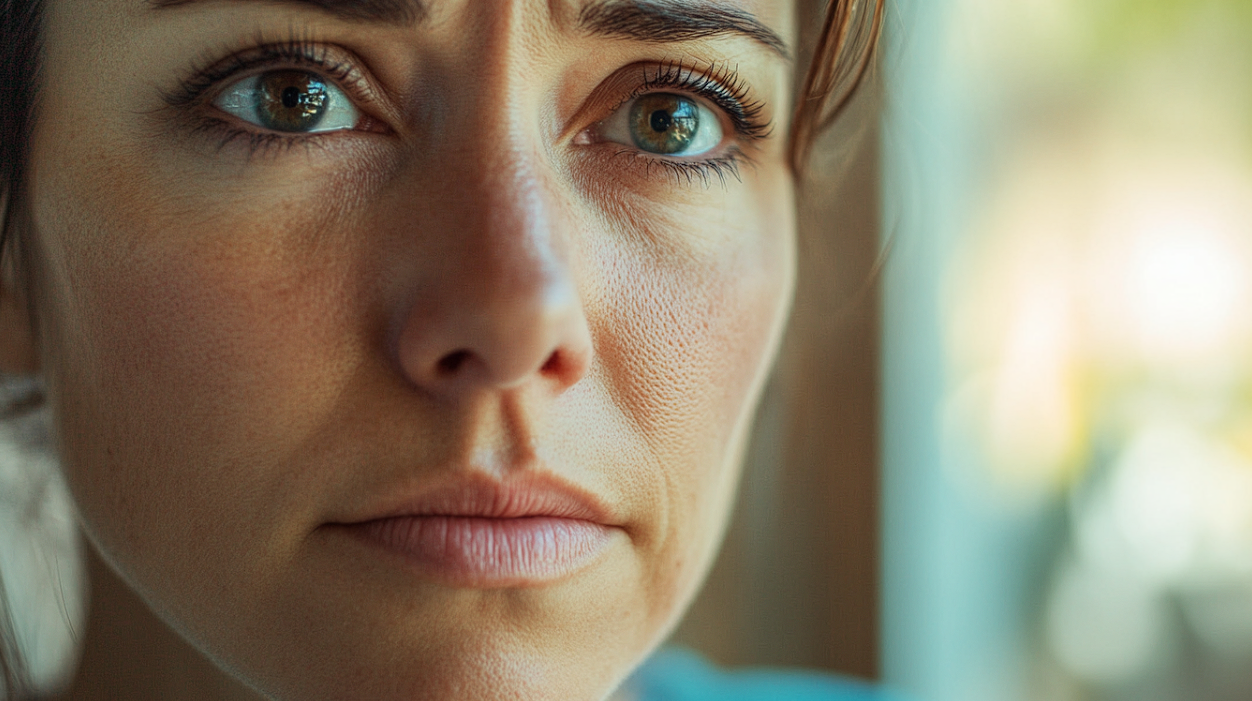
A sad and determined woman’s face | Source: Midjourney
Eleanor was still at Margaret’s kitchen table, hands curled around a now-cold mug of tea. She looked up as I entered, her eyes questioning.
I sat across from her, placing the folded newspaper on the table.
“I found this,” I said quietly.
Eleanor didn’t move. Her eyes fixed on the paper but then shifted away.
“I should have thrown that away years ago,” she whispered.
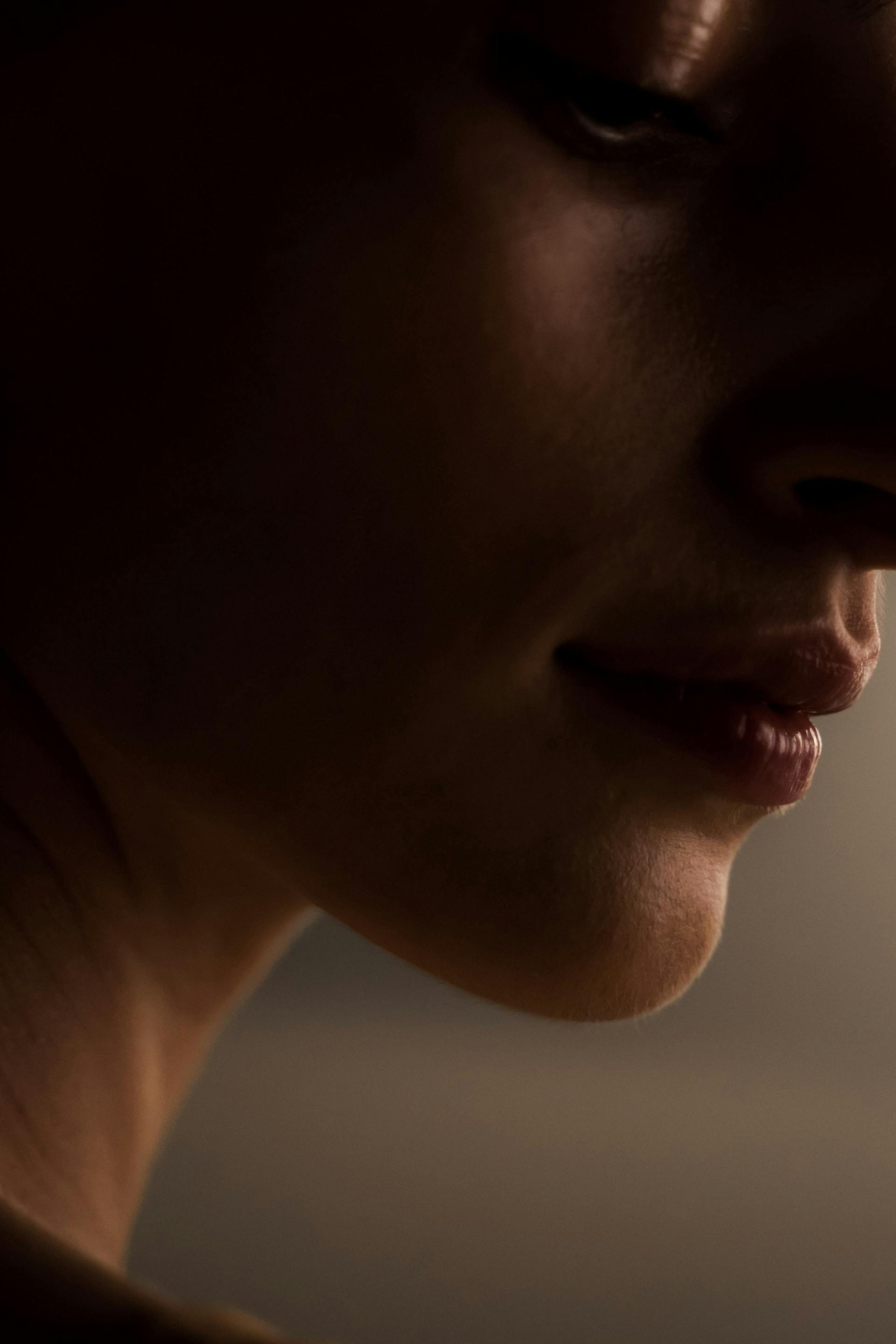
A woman’s face in shadow | Source: Pexels
“But you didn’t.” My voice was gentle. Not accusatory, just observing.
The silence stretched between us. Margaret stood by the sink, her hands clutched together.
“Michael developed severe asthma when he was four,” Eleanor finally said, her voice flat, as if she’d told this story so many times in her head that the words had lost their power. “We managed it for years, but…” Her voice wobbled.
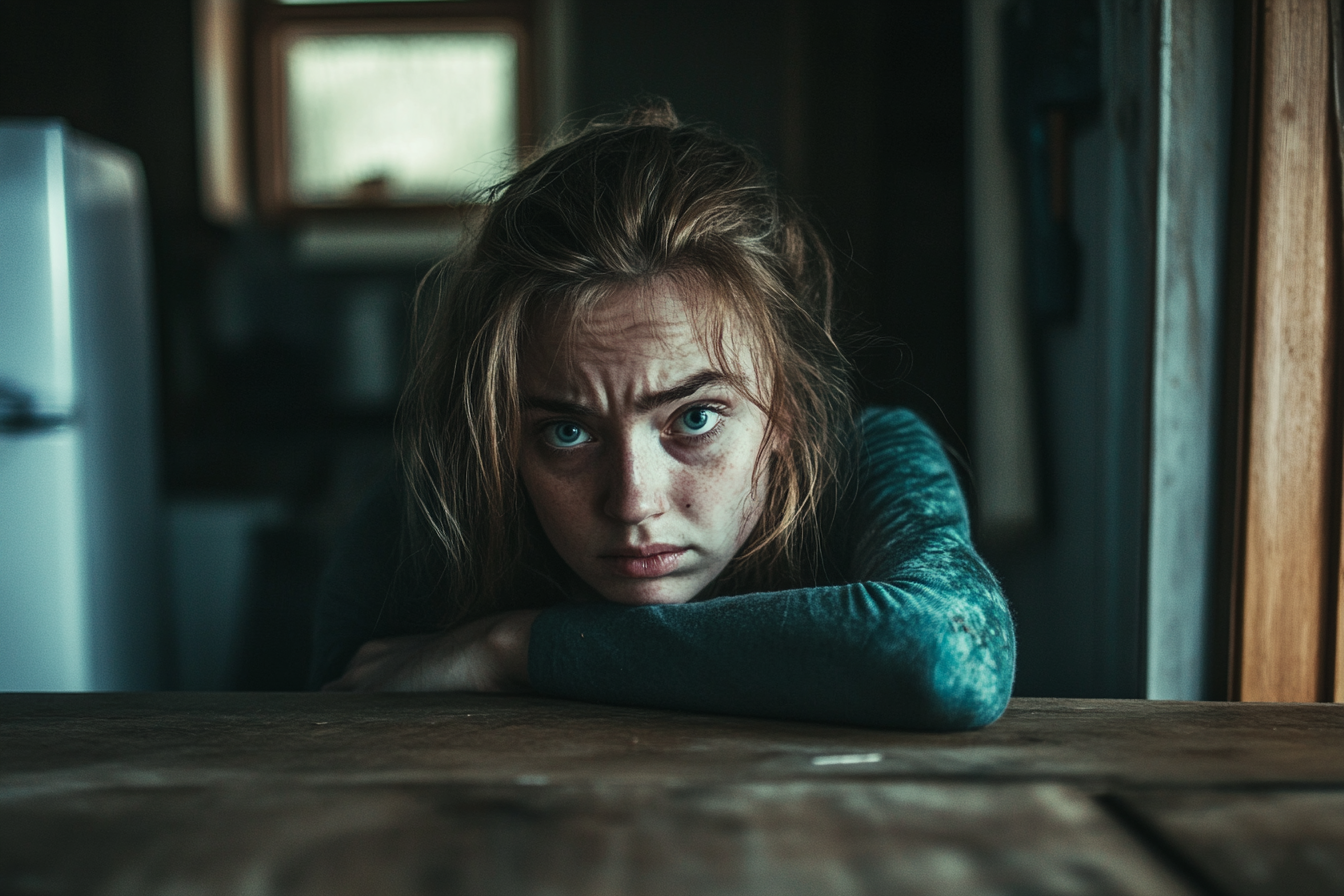
A woman at a kitchen table | Source: Midjourney
“Michael’s condition worsened suddenly. I had to rush him to the hospital one day. I called James and he… he was driving too fast.”
Her breath shuddered.
“He never made it. And Michael… a week later, he was gone, too.”
A hard lump settled in my throat. To lose both of them so close together…
I reached across the table and placed my hand over Eleanor’s. “The room. You kept it exactly the same.”
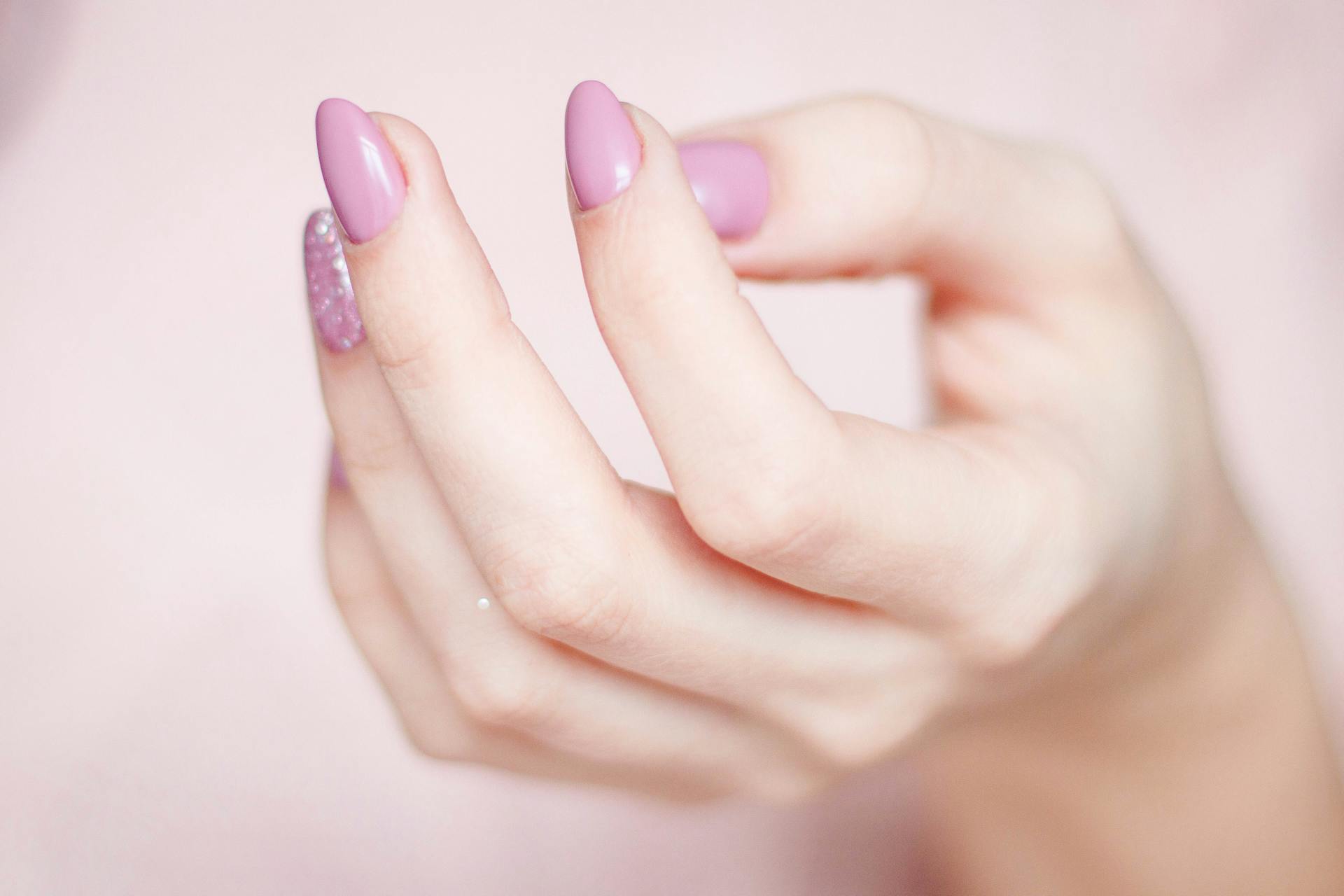
A woman’s hand | Source: Pexels
Eleanor nodded, a tear slipping down her cheek. “At first, it felt wrong to change anything. Then, as time passed, it felt wrong to even go in there. So I just… closed the door.”
“And the birthday cards?” I asked softly.
“I couldn’t help myself.” She wiped at her eyes with her free hand. “For three years afterward, I bought my son a birthday card. I wrote him a message I wished he could read. I thought I was just working through my grief, but it became more painful instead of less. It was silly.”
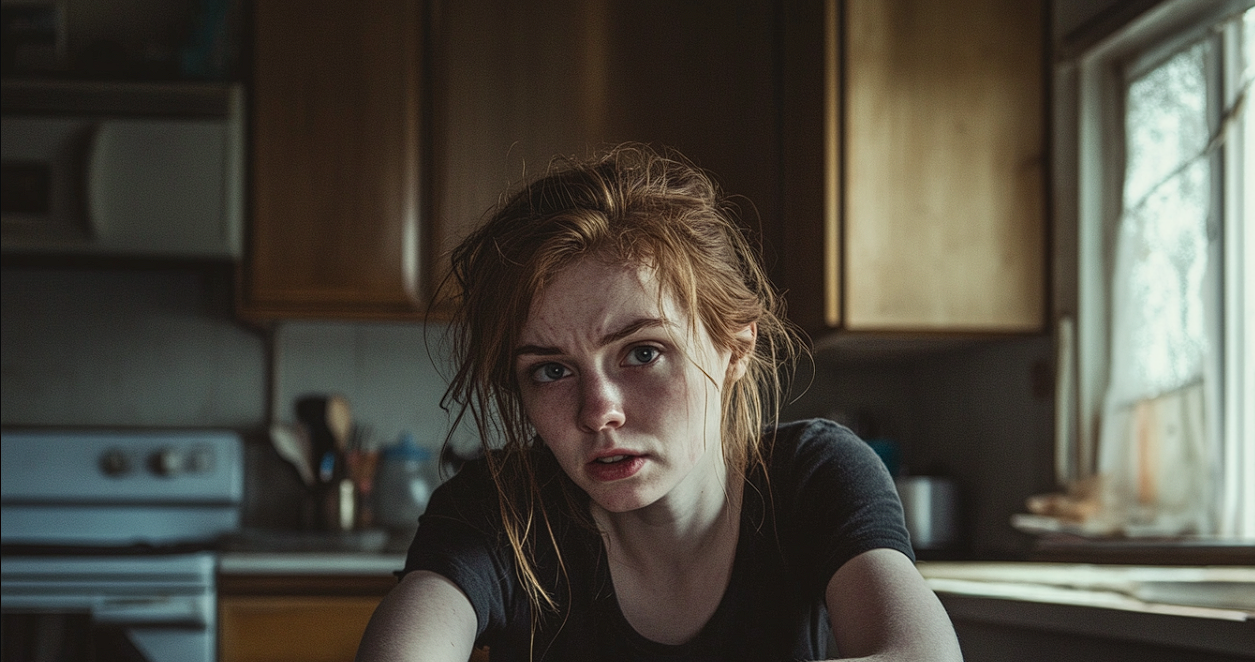
A woman in a kitchen | Source: Midjourney
“No,” Margaret said firmly, coming to sit beside Eleanor. “It’s not silly at all. It’s love.”
Eleanor broke then, her shoulders shaking with years of bottled grief. Margaret moved her chair closer, putting an arm around her.
“It wasn’t just Michael and James,” Eleanor managed between sobs. “It was me, too. Part of me died with them. And I just… I couldn’t keep up with everything. The house, the yard… it all seemed so pointless, so exhausting.”
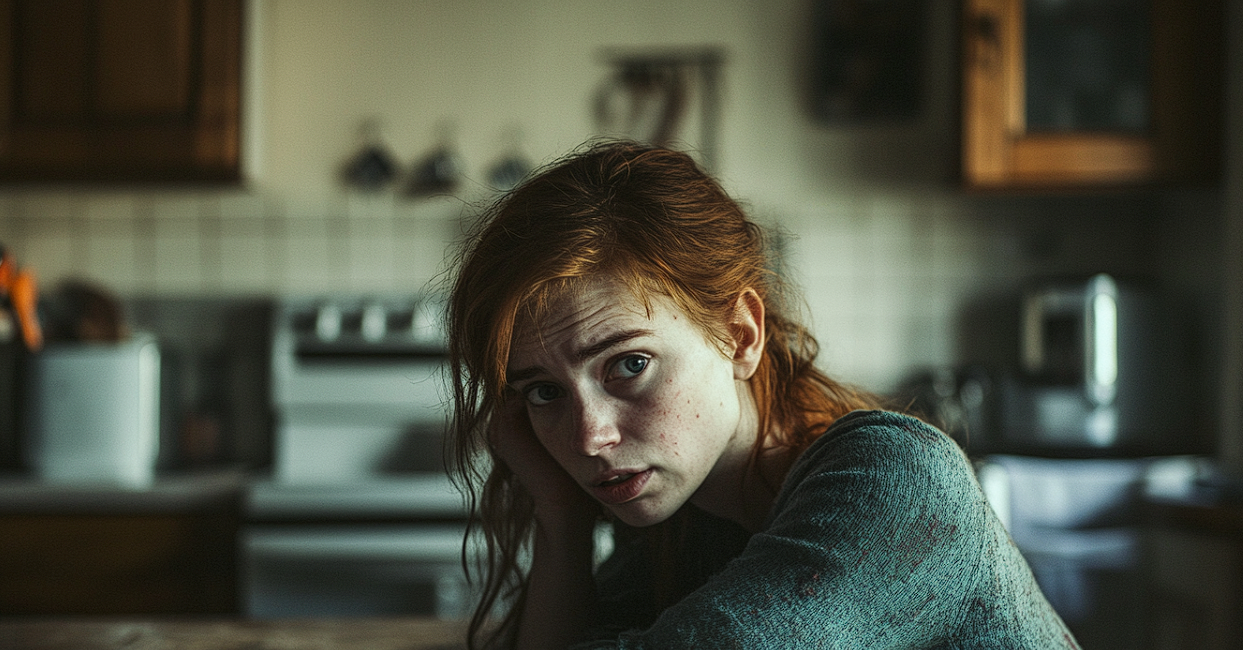
A sad woman in a kitchen | Source: Midjourney
“Grief can swallow you whole,” I said quietly. “My mom went through something similar after my dad left. Not the same, but… things piled up. Literally.”
Eleanor looked at me with red-rimmed eyes. “How did she get past it?”
“She didn’t, not really. Not on her own.” I squeezed her hand. “I helped where I could, but we both needed more than that. Eventually, she got therapy. Made some friends at a support group. It wasn’t a straight line to better.”
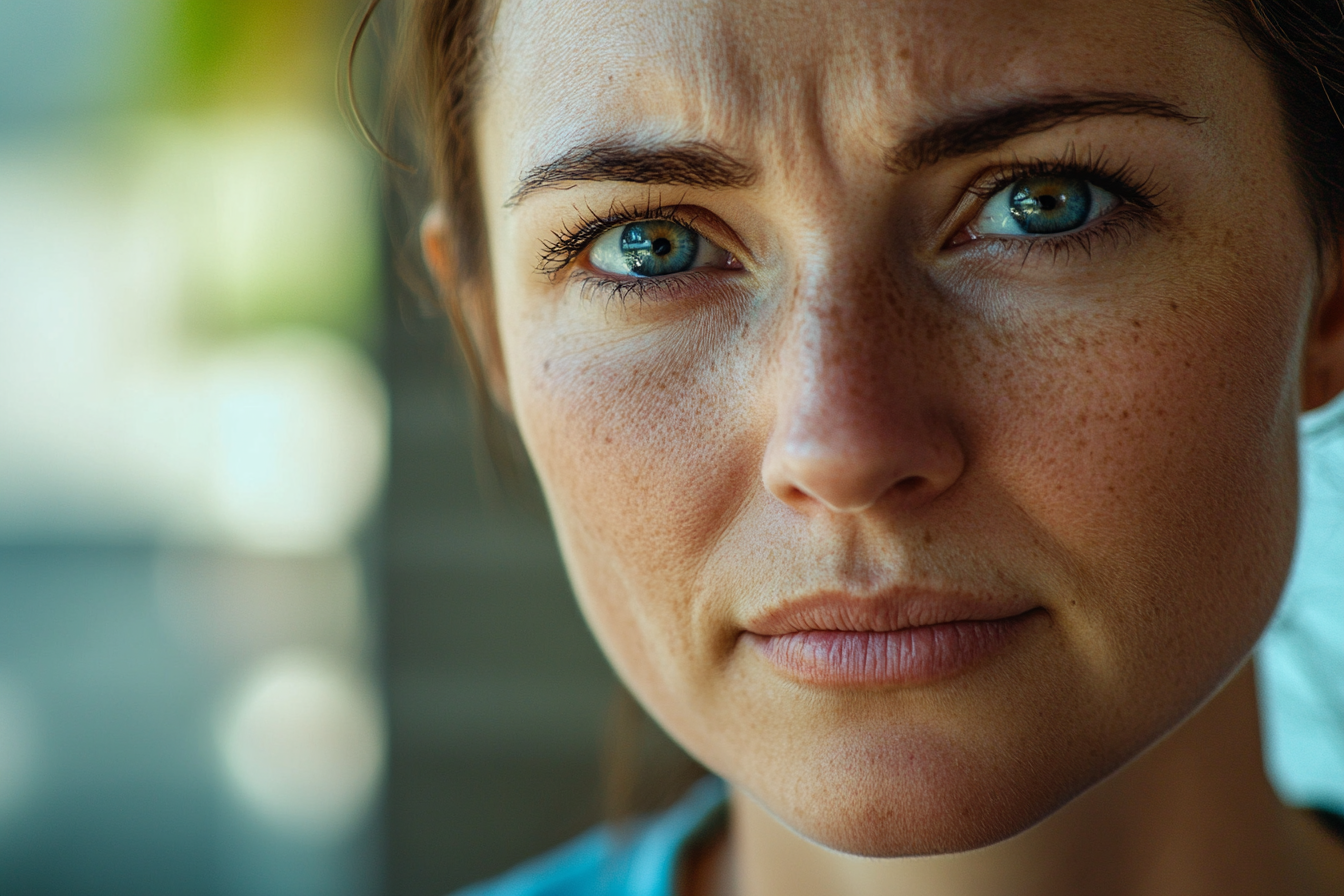
A woman looking at someone | Source: Midjourney
Margaret stroked Eleanor’s back gently. “You don’t have to be alone in this anymore.”
Eleanor wiped her eyes again. “The house… is it awful?”
“Nothing that can’t be fixed,” I assured her. “I called in back up and we’ve made good progress. Would you like to see?”
Eleanor nodded. Moments later, she stood hesitantly in the doorway of her home.
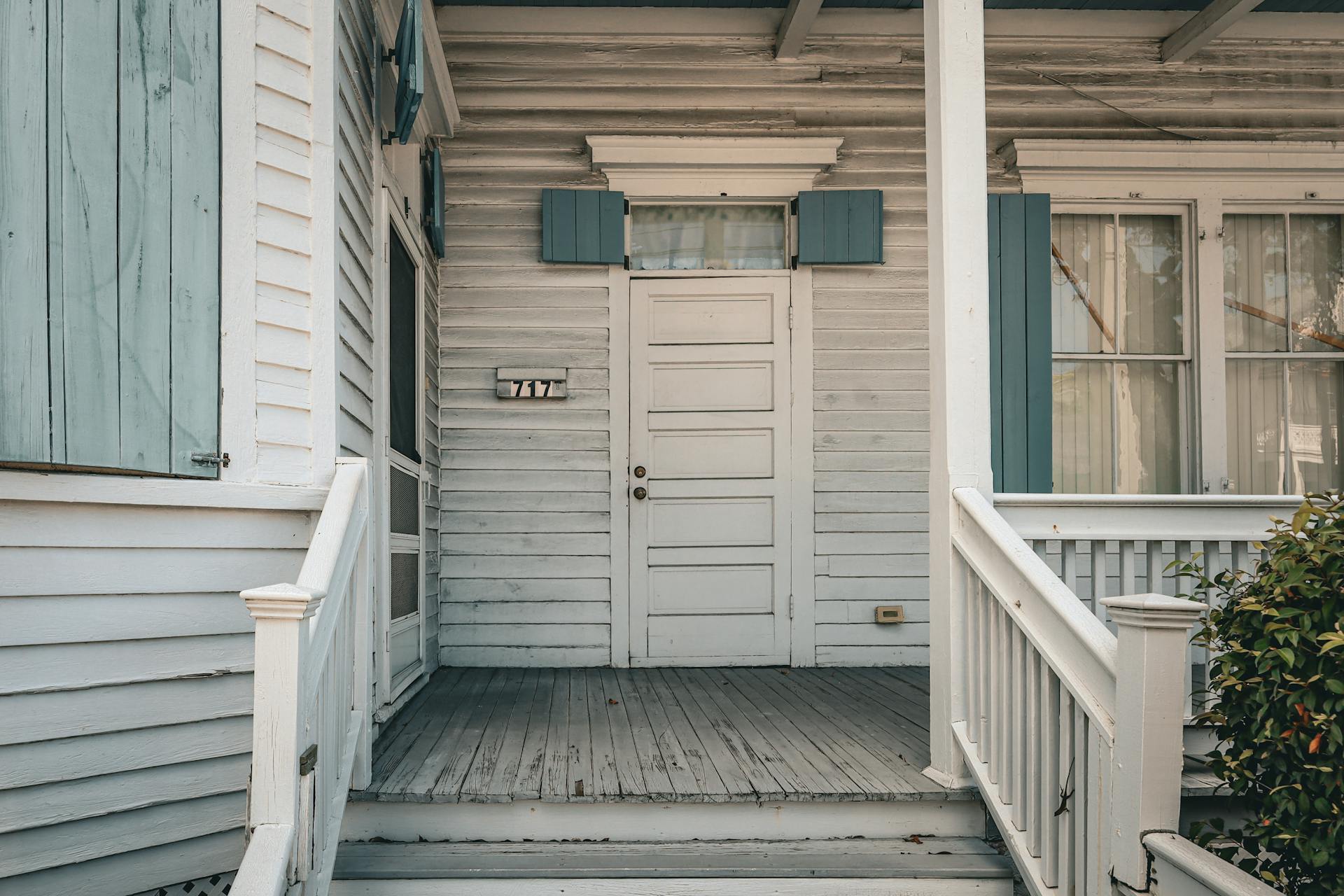
A front door and porch | Source: Pexels
Ryan stood aside, a nervous half-smile on his face.
“We’re not totally finished,” he explained. “But it’s getting there.”
Eleanor stepped inside slowly. The living room was transformed — floors cleaned, surfaces dusted, clutter removed.
She moved through the space as if in a dream, touching things, testing their reality. When she reached the closed door of the second bedroom, she froze.
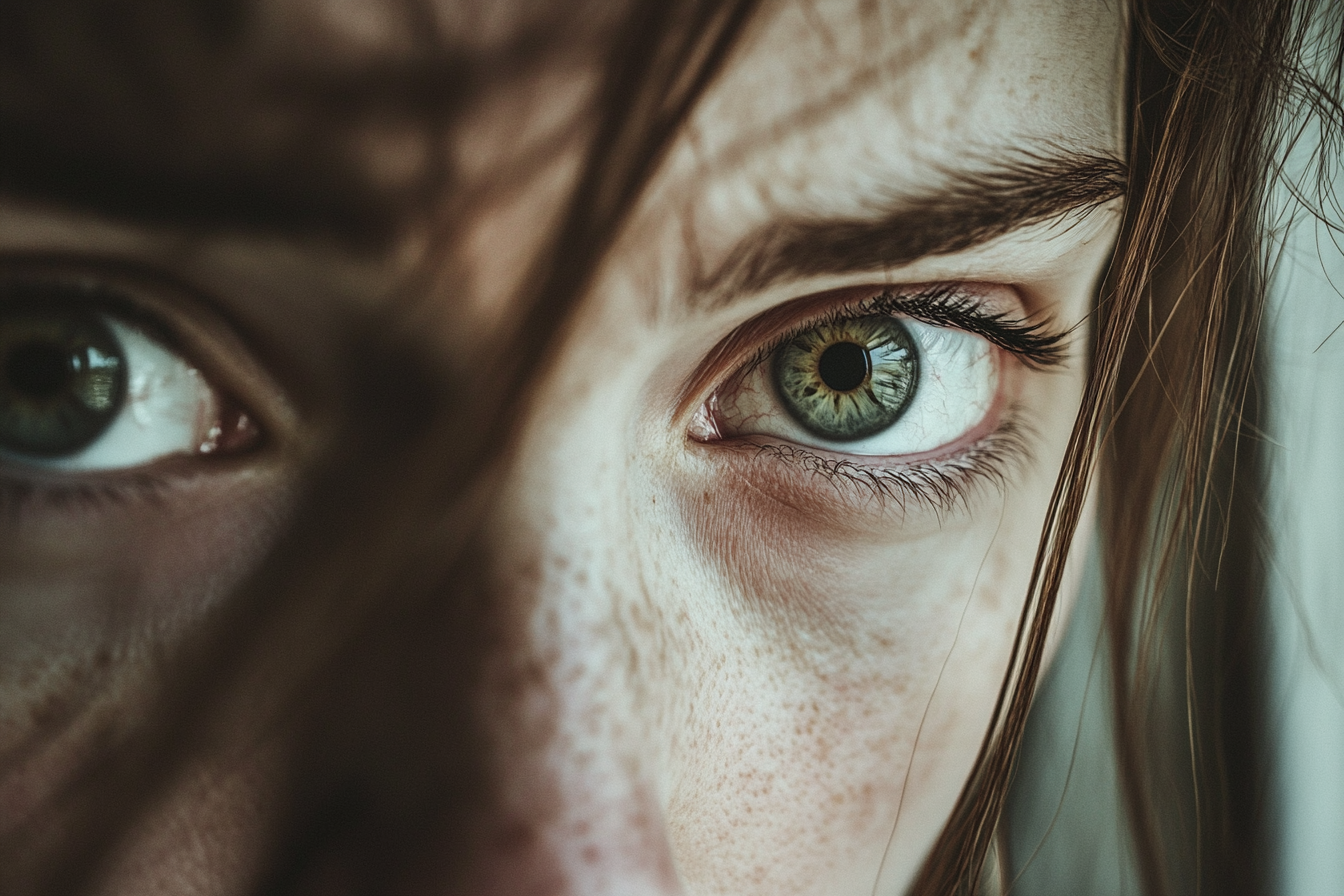
A woman looking anxious | Source: Pexels
“We didn’t touch that room,” I said quickly. “I wanted to ask first.”
Eleanor nodded but didn’t open the door.
“Thank you.” She turned to face us. “Thank you both.”
Her eyes filled with tears again, but these seemed different. Relief, maybe. Or the first hint of something like peace.
“We’ll come back tomorrow to finish up, if that’s okay,” I offered. “The bathroom needs more work, and there’s still the yard…”
“Yes,” Eleanor said, and for the first time, I saw the shadow of a smile on her face. “That would be… yes.”
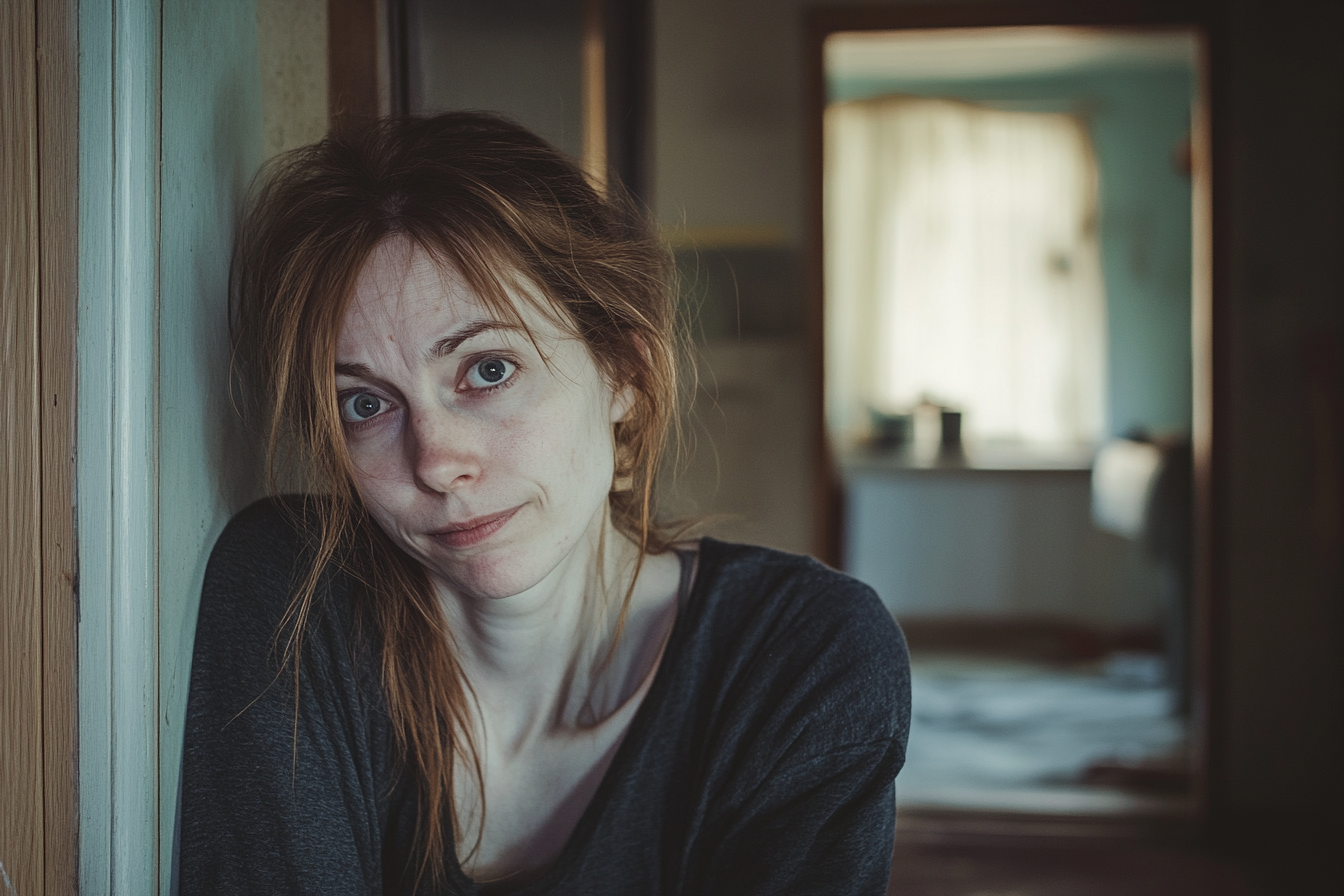
A woman smiling faintly | Source: Midjourney
The next morning, Eleanor was ready when we arrived. She had put on a clean blouse and combed her hair.
“Margaret invited me over for breakfast,” she told us. “And then we might look at some plants for the garden. If that’s all right?”
“That sounds perfect,” I said.
While Ryan tackled the overgrown yard with our garden tools, I finished the bathroom and laundry room. By mid-afternoon, the house was transformed. Not perfect, but livable. Clean. Fresh.
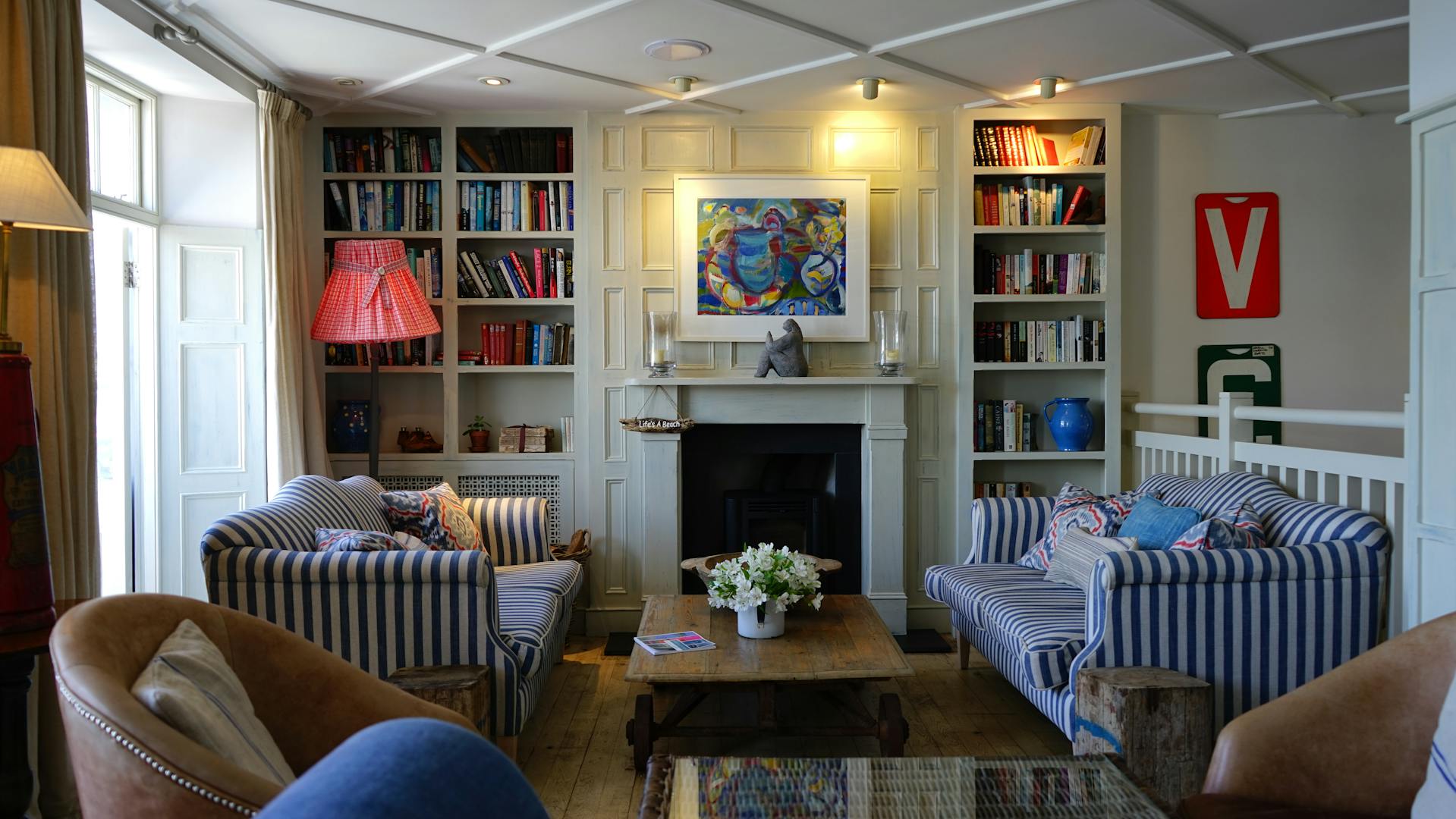
A clean and tidy home | Source: Pexels
When Eleanor returned, Margaret was with her, carrying a small tray of potted herbs.
“For the kitchen window,” Margaret explained.
Eleanor surveyed her house, her yard, her life — all visible now, all accessible again.
“I don’t know how to thank you,” she said.
“You don’t have to,” I replied.
As Ryan and I packed up our supplies, I watched Eleanor and Margaret at the kitchen table, drinking coffee. Something had shifted in Eleanor, like a door had opened, letting in light.
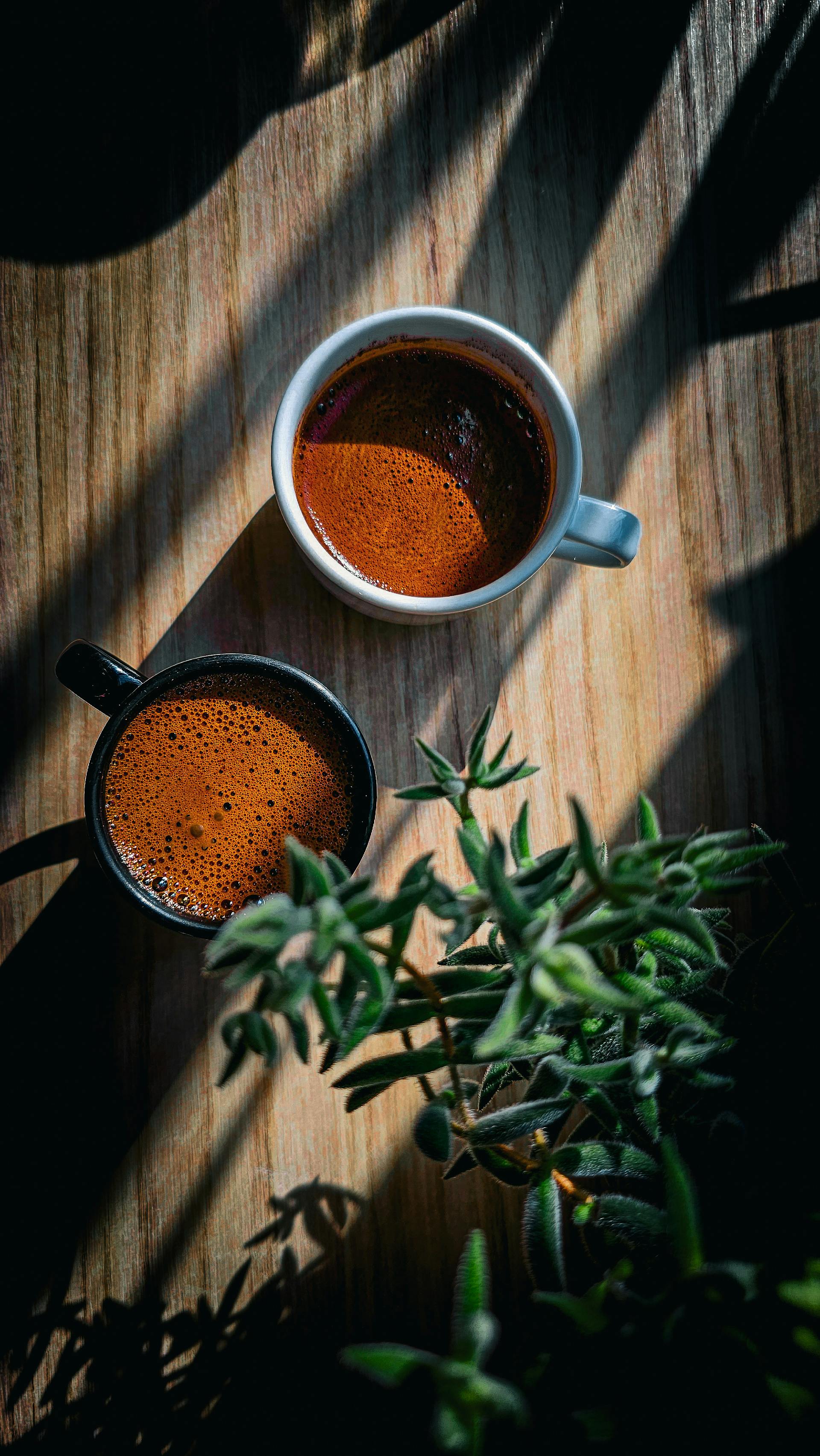
Coffee mugs on a table | Source: Pexels
I thought about my mother, about how hard it had been for her to accept help when her mental health started to deteriorate. She was the reason I’d started doing these free cleans in the first place, so nobody would have to suffer the same way.
Ryan caught my eye and smiled. “Another successful clean slate?”
I nodded, watching the two older women through the window as we walked to our van. “The cleanest.”

A smiling woman | Source: Midjourney
A Journey Through Time: The History of Kitchen Tools

Have you ever given the history of the kitchen tools we use on a daily basis any thought? Let’s go back in time today to discover the intriguing past of one such necessary appliance: the mixer.
The Inaugural Years of Blending
Our narrative starts in the middle of the 1800s, when innovators all around the world began experimenting with ways to simplify and expedite the process of combining ingredients. A Baltimore tinner named Ralph Collier received the first mixer with revolving parts patent in 1856. In less than a year, E.P. Griffith unveiled the whisk, a game-changing appliance for mixing substances. The hand-turned rotary egg beater invented by J.F. and E.P. Monroe left their imprint as well; it was patented in the US in 1859.
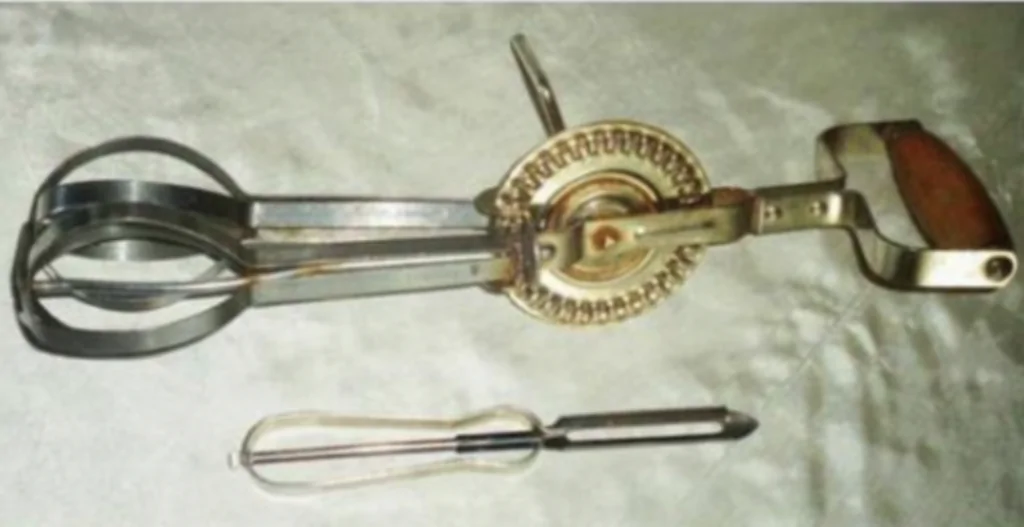
The Dover Stamping Company noticed these early prototypes and purchased the patent from the Monroe Brothers. Known as the “Dover beater,” the Dover egg beaters rose to fame in the United States. The renowned Dover beater was featured in a wonderful dessert dish called “Hur-Mon Bavarian Cream” published in the Cedar Rapids, Iowa Gazette in February 1929, demonstrating how highly esteemed these beaters were.
Welcome to the Age of Electricity
The first electric mixer didn’t appear until 1885, owing to the creative imagination of American inventor Rufus Eastman. But it was the enormous commercial mixers made by Hobart Manufacturing Company that really changed the sector. They debuted a revolutionary new model in 1914 that completely altered the mixer market.
Consumers began to choose the Hobart KitchenAid and the Sunbeam Mixmaster, two well-known American brands, in the early 20th century. However, until the 1920s, when they started to become widely used for domestic use, domestic electric mixers remained a rarity in most families, despite their popularity.
The Stand Mixer: An Innovation
Engineer Herbert Johnston of the Hobart Manufacturing Company had an epiphany in 1908 when he saw a baker using a metal spoon to stir bread dough. After realizing there had to be a simpler method, he set out to develop a mechanical equivalent.
The majority of sizable bakeries had used Johnston’s 20-gallon mixer as regular equipment by 1915. The Hobart Manufacturing Company unveiled the Kitchen Aid Food Preparer, eventually dubbed the stand mixer, just four years later in 1919. This ground-breaking creation swiftly established itself as a national kitchen standard.
This indispensable kitchen appliance has come a long way, starting with the hand-turned rotary beaters of the 19th century and continuing with the invention of electric motors and the stand mixer. Many changes have been made to it to make our lives in the kitchen easier.s
Therefore, remember the long history of your reliable mixer the next time you whip up some cookies or mix up a delicious cake batter. It is evidence of human inventiveness and the drive to make daily tasks simpler.
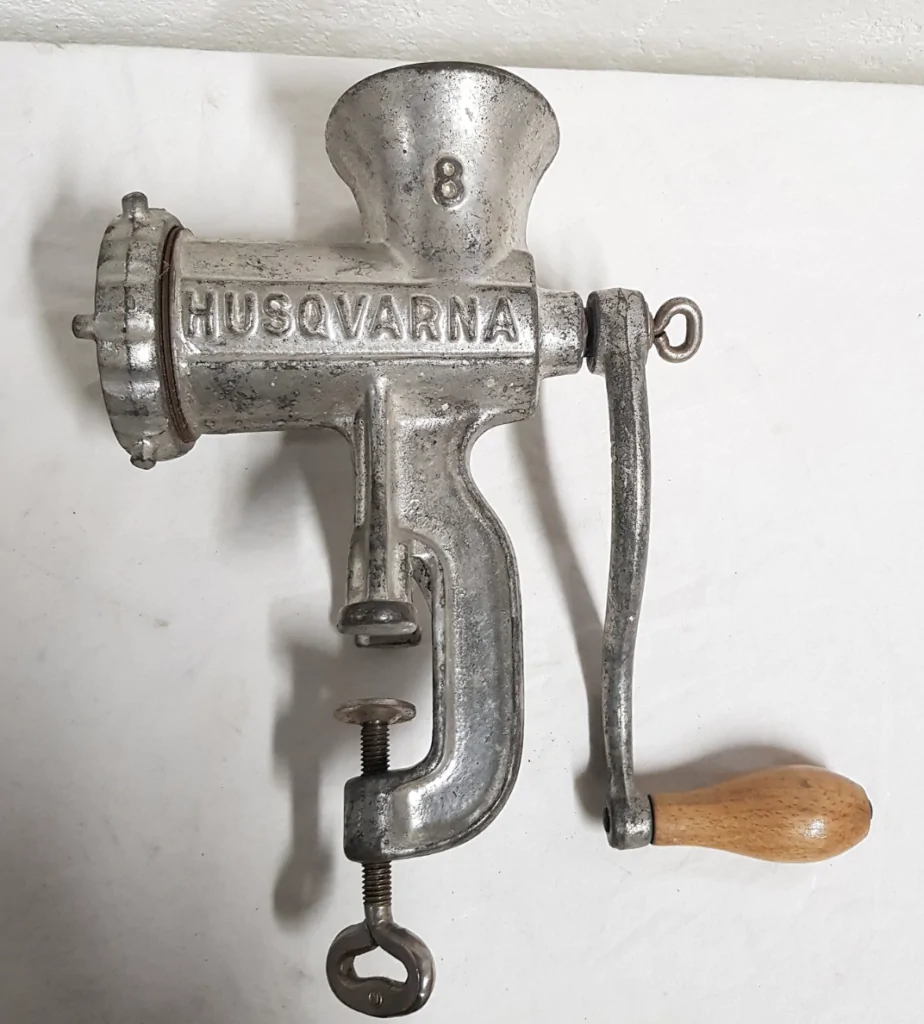
Apart from the mixer, another useful culinary instrument with an intriguing past is the meat grinder. This device, which is sometimes referred to as a “meat mincer” in the UK, is used for chopping and combining raw or cooked meat, fish, vegetables, and other ingredients.
Karl Drais created the first iteration of this amazing device in the nineteenth century, which begins the history of the meat grinder. Long, thin strands of flesh were produced by hand-cranked meat grinders that forced the meat through a metal plate with tiny pores.
As electricity became more widely available and technology advanced, manufacturers started producing meat grinders that were powered. The smooth and consistent processing of many pounds of beef is made possible by these contemporary electric grinders. The functionality of meat grinders has been greatly increased with the addition of attachments for tasks like juicing, kibbe, and sausage-making, which are included with some versions.
Thus, keep in mind the adventure and creativity that led to the creation of your meat grinder the next time you’re chopping meat for a delicious dish or experimenting with handmade sausages. It’s evidence of how kitchen gadgets have developed to enhance and facilitate our culinary explorations.
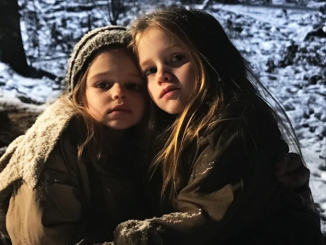

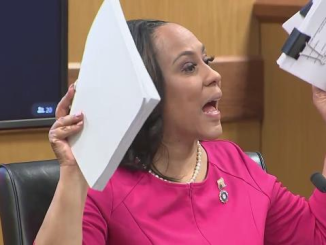
Leave a Reply